
Early Retirement Extreme
by
Jacob Lund Fisker
Published 30 Sep 2010
In real life, the prisoners of Plato's Cave are those who are prisoners or slaves to their wages and their culture. A wage slave is a wage earner who is entirely dependent on their wages. While the wage slave is free to leave the current job, he isn't free to leave the job market altogether and he can likely not imagine the possibility of doing so. He is still entirely focused on the wall. The wall shows other people not as who they are, but as what they own. There goes a man in his new sports car--what is not seen is that the car is bought on credit and that the man is stressed because he is having trouble making the payments. Wage slaves have jobs where they can go and spend their most productive hours writing high-powered memos so they can be more productive, while other people spend their time ignoring memos so they can be more productive too.
…
The lack of return on assets to pay the interest means they must either work harder or longer for their consumption, and so they do. Add lifestyle inflation (see The pursuit of stuff, status, and happiness) and you have a process that inherently demands more and more work while quite possibly providing less and less contentment. This is the definition of a wage slave. Wage slaves are free to change their job, but they're not free to quit their job. Wage slaves are free to choose other products as long as they can afford it, but they're not capable of creating alternatives to buying products, because they're too busy working. The working man A working man is someone who doesn't collect a salary or other associated benefits.
…
However, as people have increased their expenses, households now require two incomes, and thus, as it so often goes in our time, parents have outsourced their children's upbringing and, possibly taking a lesson from their own situation as wage slaves, they now act as managers of their children's lives and careers rather than as role models, signing them up for extracurricular activities that are so very important for their résumé to get into their dream college. What happened to spending all day kicking a rock around or catching frogs in the creek? For that matter, what happened to the frogs?7 Fortunately, most of the skills necessary for success as a consumer and wage slave are taught in the institutions of the public school system. It's not the subjects that are taught so much as it's the way they're taught.
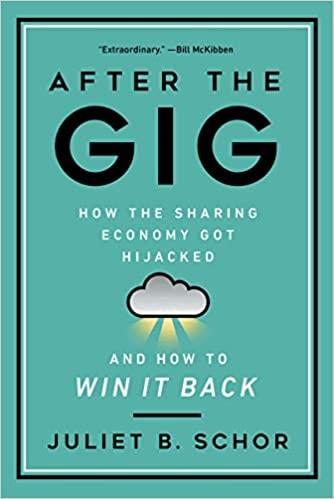
After the Gig: How the Sharing Economy Got Hijacked and How to Win It Back
by
Juliet Schor
,
William Attwood-Charles
and
Mehmet Cansoy
Published 15 Mar 2020
These criticisms have been present from the beginning but are gaining credibility, given mounting worker and popular discontent. As some of the earliest researchers to study the sharing economy we have plenty of evidence to support both points of view. We will introduce you to over-the-moon earners and customers, as well as struggling workers who describe themselves as “wage slaves,” their situations as “scary.” But the point of this book is not to stake out the empirical middle ground between the boosters and the critics. It’s to show that the future that Devon foretold really is possible. Devon’s conversation focused on cultural change, perhaps because as a technically savvy type he took the technology for granted.
…
“I feel like TaskRabbit is the next level. . . . I think Uber is the easiest one to get into.” The most disadvantaged workers sometimes articulated how bad it is at the bottom, as courier Abigail did near the end of her interview: “That’s in every job where you’re in the bottom of the pyramid of capitalism, a wage slaved worker.” The Downward Trajectory Conditions for workers have also gotten worse on many platforms, a development quite a few of our interviewees talked about. In 2014, to great media attention, TaskRabbit engineered a pivot, in which it scrapped its bidding system, shifted to algorithmic matching, and raised fees.
…
“Winning the Battle, Losing the War: Assessing the Impact of Misclassification Litigation on Workers in the Gig Economy.” Wisconsin Law Review 4:739–802. ———. 2017b. “The Drive to Precarity: A Political History of Work, Regulation & Labor Advocacy in San Francisco’s Taxi & Uber Economies.” Berkeley Journal of Employment and Labor Law 38 (1): 73–135. Dubal, Veena. 2017. “Wage-Slave or Entrepreneur? Contesting the Dualism of Legal Worker Categories.” California Law Review 105 (February): 65–126. ———. 2019a. “The Digitalization of Day Labor as Gig Work.” On Labor (blog). May 7, 2019. https://onlabor.org/the-digitalization-of-day-labor-as-gig-work. ———. 2019b. “Why the Uber Strike Was a Triumph.”

How to Be Idle
by
Tom Hodgkinson
Published 1 Jan 2004
Illness supports man in the great attempt to shirk the fact that he will surely die. ' This is not a view that is useful to society, if one sees society as an efficient organism. You would never see a newspaper report which read, ' spiritual insights and moments of true joy gained by slumbering wage slave while confined to bed ' . But in the far-off days before painkillers and Lemsip, illness and trauma were not to be swept under the carpet and ignored. They were to be respected, listened to and given time to work themselves out. When Samuel Pepys had an immensely painful operation to remove a kidney stone, he did not rush back into the office 36 hours later.
…
I find I can spend all day complaining about being tired, listless, lacking in energy, desperate for sleep. Then at six, in the pub or at home, with a pint of foaming nut-brown ale before me instead of a computer screen, I will suddenly perk up. Energy will rush back into my body. I am alive. And with one drink, the wage slaves of the day are transformed into thinking, feeling, laughing, independent human beings. We are our own masters once more. You can see it in our faces: just walk round a city at 6 p.m. and look in through the windows of the pubs and bars - you will see smiling people, full of animated chatter. They may be complaining about the boss or their lot in general, but for a little while, and before they return to the realities of home, they are in a delightful suspended reality, where everyone is a little king or queen.
…
Although I may counsel going with the flow in other areas of life, when it comes to travel and holidays, you are rewarded for going against the flow. Travelling on buses at n a.m. can be immensely pleasurable. If you avoid travelling around when the masses are on the move, you can bring a satisfying measure of control into your life. This would mean, of course, going freelance, a move rarely regretted by the former wage slave. The management guru and friend to the idle Charles Handy invented the idea of chunking. This gives him one huge holiday every year. I went to interview him in 1 993, when he explained the way that he divides his time: ' I worked out that I need 1 00 days a year to make serious money. I do that by teaching at various seminars.

What Kind of Creatures Are We? (Columbia Themes in Philosophy)
by
Noam Chomsky
Published 7 Dec 2015
When the producer sold his product for a price, Ware writes, “he retained his person. But when he came to sell his labor, he sold himself” and lost his dignity as a person as he became a slave—a “wage slave,” the term commonly used. Some 170 years ago, a group of skilled workers in New York repeated the common view that a daily wage is a form of slavery and warned, perceptively, that a day might come when wage slaves “will so far forget what is due to manhood as to glory in a system forced on them by their necessity and in opposition to their feelings of independence and self-respect”—a day they hoped would be “far distant.”

The Government of No One: The Theory and Practice of Anarchism
by
Ruth Kinna
Published 31 Jul 2019
They say: ‘Now, here, perform this piece of work in a certain length of time’, and if you don’t … why, when you come around for your pay next Saturday, you simply find in the envelope which gives you your money, a note which informs you of the fact that you have been discharged. Now … the leather thong dipped in salt brine, for the chattel slave, had been exchanged under the wage slave system for the lash of hunger, an empty stomach and the ragged back of the wage-slave of free-born American sovereign citizens …17 Parsons’s analysis pointed to a second facet of bourgeois incivility: the force essential to maintain the unequal relations that private ownership created. Protecting the rights of property owners required regiments of police and the institution of elaborate court and prison systems.
…
The land, the implements of production and communication, the resources of life are now held as private property, and its owners exact tribute from the propertyless. The welcome that former slave-owners gave to the terms of abolition convinced Parsons of the truth of this analysis. He explained: Under the wage slavery system the wage slave selects his master. Formerly the master selected the slave; today the slave selects his master … He is compelled to find one … the change of the industrial system … upon the question of the chattel slave system of the South and that of the so-called ‘free laborer’, and their wages … was a decided benefit to the former chattel slave owners who would not exchange the new system of wage labor at all for chattel labor, because now the dead had to bury themselves and the sick take care of themselves, and now they don’t have to employ overseers to look after them.
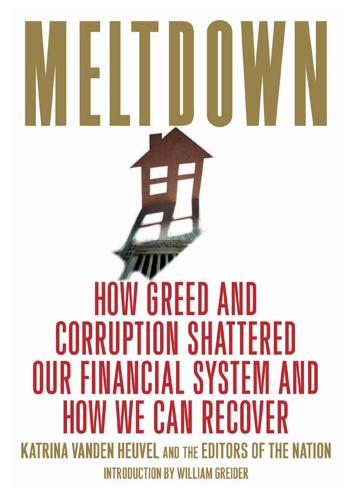
Meltdown: How Greed and Corruption Shattered Our Financial System and How We Can Recover
by
Katrina Vanden Heuvel
and
William Greider
Published 9 Jan 2009
But if a person from the working class loses her job, she would have to find an equivalent one within the month or it’ll be fast food and junior college for everyone in the family. Working-class people are (excuse the Marxism) wage-slaves. Those in the working class live on the edge of poverty, saying to themselves that they are doing all right. They drink and watch far too much TV. They buy Lotto tickets and live moderate lives that are far beyond their means. The profit they generate flows to the rich, and they borrow to fill out the coffers. Most Americans are working-class wage-slaves, arguing that they’re better off. This fantasy, more than any other confusion, hobbles us. Because we fear to see how delicate our economic state is, we cannot motivate ourselves to demand change.

Before Babylon, Beyond Bitcoin: From Money That We Understand to Money That Understands Us (Perspectives)
by
David Birch
Published 14 Jun 2017
He said that the ‘white price’ for building work in the Netherlands is approaching twice the ‘black price’ because the builders use cash not only to evade VAT but also to pay their staff and suppliers in cash, thus avoiding income and corporate taxes as well. I joked with him saying that €200 and €500 notes were never used for legitimate transactions and he replied, entirely seriously, that he had never used a €100 note in a legitimate transaction either! No wonder the taxes I pay as a middle England wage slave are so high when half the population is on the fiddle. An old acquaintance of mine – who used to work for the police, by the way – happened to mention to me that he was having some work done on his driveway. The contractors had quoted him two grand for the work but offered him a £400 discount for cash.
…
Minsky, incidentally, goes on to make some comments about the relationship between money and taxation: Taxes will be lower because of the vast amount of uncollected tax today. Given that somewhere in the region of a fifth of the economy in developed countries is untaxed and outside the formal financial system, the tax burden falls heavily on those of us who remain wage slaves, and as the post-crisis tax burden climbs to the point where it falls off the demographic cliff, so will the calls for reform grow. Minsky went on to reinforce my observations above by saying that The system of electronic currency will never be acceptable unless the laws protecting privacy are greatly strengthened.
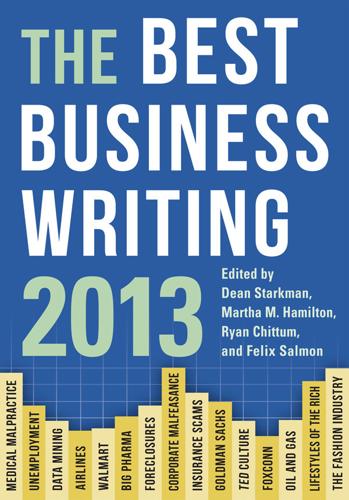
The Best Business Writing 2013
by
Dean Starkman
Published 1 Jan 2013
Brave New World 24. How Companies Learn Your Secrets Charles Duhigg New York Times Magazine 25. Glass Works: How Corning Created the Ultrathin, Ultrastrong Material of the Future Bryan Gardiner Wired 26. Skilled Work, Without the Worker John Markoff New York Times 27.I Was a Warehouse Wage Slave Mac McClelland Mother Jones 28. In China, Human Costs Are Built Into an iPad Charles Duhigg and David Barboza New York Times 29. How Apple and Amazon Security Flaws Led to My Epic Hacking Mat Honan Wired Permissions List of Contributors Introduction Dean Starkman Compiling the Best Business Writing series each year reliably brings the pleasures of the eclectic and unexpected.
…
“We’re on the cusp of completely changing manufacturing and distribution,” said Gary Bradski, a machine-vision scientist who is a founder of Industrial Perception. “I think it’s not as singular an event, but it will ultimately have as big an impact as the Internet.” Mac McClelland 27. I Was a Warehouse Wage Slave Mother Jones When Mother Jones’s Mac McClelland took a temporary warehouse job, she ran into a woman, who offered advice: “You’ll see people dropping all around you. But don’t take it personally and break down or start crying when they yell at you.” The warehouse, designed to get online purchases to customers as quickly as possible, is a worker’s hell—made possible by people’s desperation for jobs.
…
Reprinted by permission “Skilled Work, Without the Worker,” by John Markoff, from the New York Times, August 19, 2012. © 2012 The New York Times. All rights reserved. Used by permission and protected by the Copyright Laws of the United States. The printing, copying, redistribution, or retransmission of this Content without express written permission is prohibited. www.nytimes.com. “I Was a Warehouse Wage Slave,” by Mac McClelland. First published in Mother Jones March/April 2012. © 2012 by Foundation for National Progress. Reprinted by permission of Foundation for National Progress. “In China, Human Costs Are Built Into an iPad,” by Charles Duhigg and David Barboza, from the New York Times, January 26, 2012. © 2012 The New York Times.

More Joel on Software
by
Joel Spolsky
Published 25 Jun 2008
Or, if you’re really lucky, the customer will smile wanly and put your code in a drawer and never use it again and never call you back. Somewhere in the middle is consultingware, where you pretend to be doing shrink-wrap while really doing custom development. Here’s how consultingware works: 1. You’re working as a wage slave writing code for a shoe company, and 2. The company needs shoe-shining software, so 3. You develop shoe-shining software in VB 3.0 using bits and pieces of JavaScript, Franz Lisp, and a FileMaker database running on an old Mac connected over the network using AppleScript, then 4. Everyone thinks it’s the cat’s whiskers, so, always having dreamed of starting your own software company and maybe being Bill Gates or perhaps even just Larry Ellison 5.
…
The sales guy, being a sales guy, sells him $100K worth of trousers-pressing software, 11. And now you spend six months writing a one-off “trouserspressing module” for this client, which 12. No other client will ever need, thus, effectively, 13. For all intents and purposes, you’ve just spent a year raising VC so that you could work as a wage slave writing code for a trouser company; GOTO 1. Sparky, I’m gonna have to strongly recommend clinging as strongly as possible to the shrink-wrap side of the equation. That’s because shrink-wrap has no marginal costs for each additional customer, so you can essentially sell the same thing over and over again and make a lot more profit.

What Algorithms Want: Imagination in the Age of Computing
by
Ed Finn
Published 10 Mar 2017
Sandvig, “Seeing the Sort: The Aesthetic and Industrial Defense of ‘The Algorithm.’” 41. Carruth, “The Digital Cloud and the Micropolitics of Energy,” 342. 42. Much of the following section is based on McClelland’s remarkable exposé of cloud warehouse labor practices: McClelland, “I Was a Warehouse Wage Slave.” 43. Soper, “Inside Amazon’s Warehouse.” 44. Duhigg and Barboza, “Apple’s iPad and the Human Costs for Workers in China.” 45. “Foxconn Says Underage Workers Used in China Plant.” 46. Blodget, “CEO of Apple Partner Foxconn.” 47. Markoff, Machines of Loving Grace, 97–98. 48. Cf. Bogost, Unit Operations; this sampling of tasks was offered on the site on August 15, 2014. 49.
…
“Cognitive Assistant That Learns and Organizes.” SRI International’s Artificial Intelligence Center. Accessed May 27, 2014. http://www.ai.sri.com/project/CALO. Markoff, John. Machines of Loving Grace: The Quest for Common Ground Between Humans and Robots. 1st ed. Ecco, 2015. McClell. Mac. “I Was a Warehouse Wage Slave.” Mother Jones, March/April 2012. http://www.motherjones.com/politics/2012/02/mac-mcclelland-free-online-shipping-warehouses-labor. McCloud, Scott. Understanding Comics: The Invisible Art. Reprint ed. New York: William Morrow Paperbacks, 1994. McCulloch, Warren S., and Walter Pitts. “A Logical Calculus of the Ideas Immanent in Nervous Activity.”
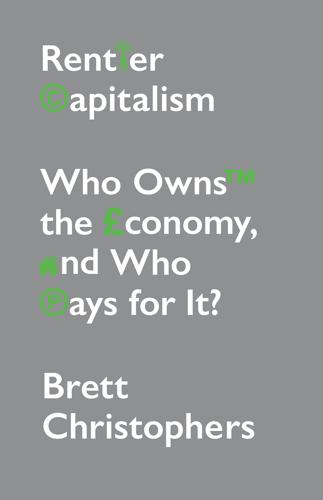
Rentier Capitalism: Who Owns the Economy, and Who Pays for It?
by
Brett Christophers
Published 17 Nov 2020
John Lanchester, in his essay on Facebook, emphasizes the temporal aspect: that is, ‘the never publicly discussed issue of the huge gulf between early employees in a company, who have often been made unfathomably rich, and the wage slaves who join the firm later in its story’. He cites Bonnie Brown, a masseuse at Google in the company’s early days, on the fact that ‘a sharp contrast developed between Googlers working side by side. While one was looking at local movie times on their monitor, the other was booking a flight to Belize for the weekend. How was the conversation on Monday morning going to sound now?’70 The geographical and structural dimensions, meanwhile, are closely interlinked. The key structural issue is that many of the ‘wage slaves’ to whom Lanchester refers are not directly employed by the platform operator, though they undoubtedly carry out work for them.
…
The key structural issue is that many of the ‘wage slaves’ to whom Lanchester refers are not directly employed by the platform operator, though they undoubtedly carry out work for them. Rather, drudge work is often outsourced, meaning that this low-wage corner of company operations is, to a significant extent, hidden – which is why many people simply are not aware that it exists.71 Not only do many digital-platform wage slaves work at one remove from the platform operator structurally; they also often work at one or more removes geographically. Hans Block and Moritz Riesewieck’s award-winning 2018 documentary The Cleaners, for example, examined the work of moderating content uploaded to leading Western social-media platforms that is carried out ‘in the developing world, in darkened offices, by low-wage workers who must view 25,000 disturbing images in a single shift’, focusing particularly on workers in Manila, in the Philippines, where much of the outsourced content screening is done.72 These workers are, in a sense, doubly out of sight and out of mind, spatially as well as structurally sequestered.
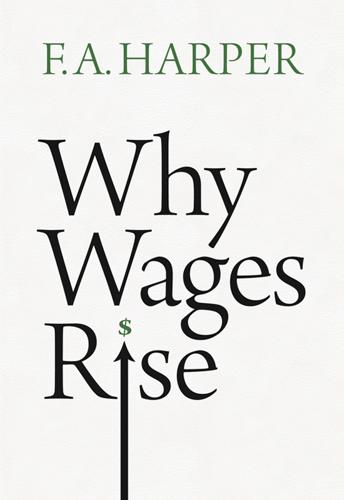
Why Wages Rise
by
F. A. Harper
Published 1 Jan 1957
He can then withhold any part of it he wishes from the laborer — the one who Marx claimed was the rightful owner of all of it because he is the one who created all its value in the first place. So pay for the use of capital is like loot from theft, as Marx saw it. He said that the absolute amount of profit is equal to the absolute amount of surplus value. Persons who hold these Marxian beliefs charge that the laboring man is “exploited” by the capitalist owner; that he is a “wage-slave” of the capitalist. The term surplus value was defined by Marx, then, as the part of production which, under private ownership, is confiscated by the capitalist from its rightful owner, the laborer. That is the part which all Marxians believe can and should be reclaimed by labor. The amount of surplus value, by this concept, measures the amount that wages could rise aside from any increase in hourly output.

Who Rules the World?
by
Noam Chomsky
Rather, they will regain their status as “free American citizens.”12 The capitalist revolution instituted a crucial change from price to wage. When the producer sold his product for a price, Ware writes, “he retained his person. But when he came to sell his labor, he sold himself,” and lost his dignity as a person as he became a slave—a “wage slave,” the term commonly used. Wage labor was considered similar to chattel slavery, though differing in that it was temporary—in theory. That understanding was so widespread that it became a slogan of the Republican Party, advocated by its leading figure, Abraham Lincoln.13 The concept that productive enterprises should be owned by the workforce was common coin in the mid-nineteenth century, not just by Marx and the left but also by the most prominent classical liberal figure of the day, John Stuart Mill.
…
There are serious barriers to overcome in the struggle for justice, freedom, and dignity, even beyond the bitter class war conducted ceaselessly by the highly class-conscious business world with the “indispensable support” of the governments they largely control. Ware discusses some of these insidious threats as they were understood by working people. He reports the thinking of skilled workers in New York 170 years ago, who repeated the common view that a daily wage is a form of slavery and warned perceptively that a day might come when wage slaves “will so far forget what is due to manhood as to glory in a system forced on them by their necessity and in opposition to their feelings of independence and self-respect.”17 They hoped that that day would be “far distant.” Today, signs of it are common, but demands for independence, self-respect, personal dignity, and control of one’s own work and life, like Marx’s old mole, continue to burrow not far from the surface, ready to reappear when awakened by circumstances and militant activism. 13 Whose Security?
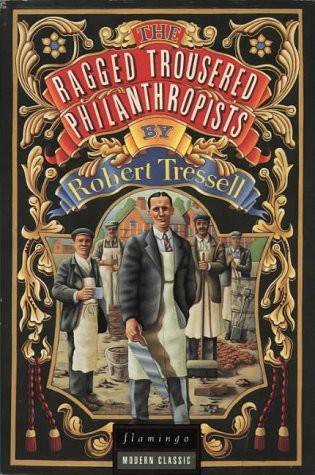
The Ragged Trousered Philanthropists
by
Robert Tressell
Published 31 Dec 1913
They all trembled before him and ran about whenever he spoke to or called them, because they knew that there were always a lot of other men out of work who would be willing and eager to fill their places if they got the sack. Although it was now summer, and the Distress Committee and all the other committees had suspended operations, there was still always a large number of men hanging about the vicinity of the Fountain on the Parade––The Wage Slave Market. When men finished up for the firm they were working for they usually made for that place. Any master in want of a wage slave for a few hours, days or weeks could always buy one there. The men knew this and they also knew that if they got the sack from one firm it was no easy matter to get another job, and that was why they were terrified. When Misery was gone––to repeat the same performance at some other job––the sub-foreman would have a crawl round to see how the chaps were getting on: to find out if they had used up all their paint yet, or to bring them some putty so that they should not have to leave their work to go to get anything themselves: and then very often Rushton himself would come and stalk quietly about the house or stand silently behind the men, watching them as they worked.
…
.* 35 facing the ‘problem’ Nearly every other firm in the town was in much the same plight as Rushton & Co.; none of them had anything to speak of to do, and the workmen no longer troubled to go to the different shops asking for a job. They knew it was of no use. Most of them just walked about aimlessly or stood talking in groups in the streets, principally in the neighbourhood of the Wage Slave Market near the fountain on the Grand Parade. They congregated here in such numbers that one or two residents wrote to the local papers complaining of the ‘nuisance’, and pointing out that it was calculated to drive the ‘better-class’ visitors out of the town. After this two or three extra policemen were put on duty near the fountain with instructions to ‘move on’ any groups of unemployed that formed.
…
When Owen quoted statistics to prove that as far as commerce and the quantity produced of commodities of all kinds was concerned, the last year had been a record one, they became more infuriated than ever, and talked threateningly of what they would like to do to those bloody Socialists who were upsetting everything. One day Crass, who was one of these upholders of the existing system, scored off Owen finely. A little group of them were standing talking in the Wage Slave Market near the Fountain. In the course of the argument, Owen made the remark that under existing conditions life was not worth living, and Crass said that if he really thought so, The Ragged Trousered Philanthropists there was no compulsion about it; if he wasn’t satisfied––if he didn’t want to live––he could go and die.
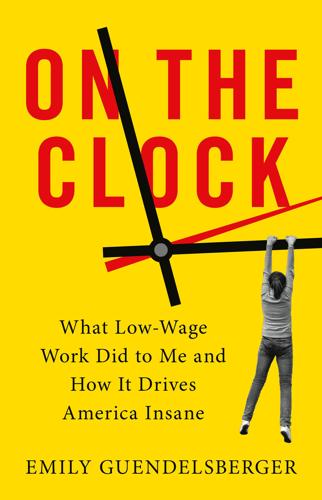
On the Clock: What Low-Wage Work Did to Me and How It Drives America Insane
by
Emily Guendelsberger
Published 15 Jul 2019
Those who couldn’t quickly cool off and return to work were sent home or taken out in stretchers and wheelchairs and transported to area hospitals. And new applicants were ready to begin work at any time.… The supply of temporary workers keeps Amazon’s warehouse fully staffed without the expense of a permanent workforce that expects raises and good benefits. The next peek inside fulfillment centers was “I Was a Warehouse Wage Slave: My Brief, Backbreaking, Rage-Inducing, Low-Paying, Dildo-Packing Time Inside the Online-Shipping Machine.” The 2012 first-person account in Mother Jones2 detailed the week reporter Mac McClelland spent working in a warehouse for “Amalgamated Product Giant Shipping Worldwide Inc.,” generally understood to be lawsuit-avoidant shorthand for Amazon: The culture is intense, an Amalgamated higher-up acknowledges at the beginning of our training.… We don’t want to be so intense, the higher-up says.
…
Spencer Soper, “Inside Amazon’s Warehouse: Lehigh Valley Workers Tell of Brutal Heat, Dizzying Pace at Online Retailer,” Morning Call (Allentown, PA), September 18, 2011, http://articles.mcall.com/2011-09-18/news/mc-allentown-amazon-complaints-20110917_1_warehouse-workers-heat-stress-brutal-heat. 2. Mac McClelland, “I Was a Warehouse Wage Slave: My Brief, Backbreaking, Rage-Inducing, Low-Paying, Dildo-Packing Time Inside the Online-Shipping Machine,” Mother Jones, March/April 2012, http://www.motherjones.com/politics/2012/02/mac-mcclelland-free-online-shipping-warehouses-labor/. 3. Dave Jamieson, “The Life and Death of an Amazon Warehouse Temp: What the Future of Low-Wage Work Really Looks Like,” Huffington Post Highline, October 21, 2015, http://highline.huffingtonpost.com/articles/en/life-and-death-amazon-temp/. 4.

Surviving AI: The Promise and Peril of Artificial Intelligence
by
Calum Chace
Published 28 Jul 2015
Human surgeons may not be required to check the diagnosis of an AI-powered medical system, and human lawyers may not be needed to interpret the advice of an AI attorney. The moment when we have to accept that most people will never work again can be described as an economic singularity. If all goes well, the AIs and their robot handmaidens will generate an economy of radical abundance, and humans will no longer be wage slaves. We will all enjoy lives of leisure, keeping fit, having fun with friends, expanding our intellectual faculties. No-one will lack a sense of meaning in their lives. We will find just and fair ways to share the munificence of this plenty, and we will make the transition from here to there without upset.
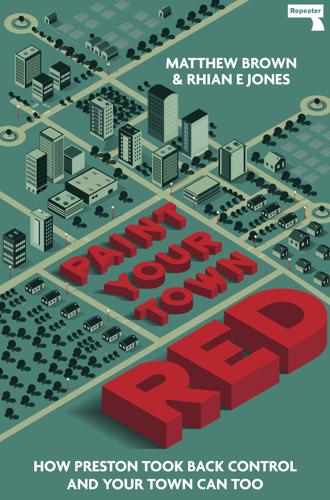
Paint Your Town Red
by
Matthew Brown
Published 14 Jun 2021
Indeed, there is a plethora of projects that are not covered in this book simply because those engaged in them have little time, capacity or inclination to explain them to outsiders. For many not yet involved in these processes, the situation remains similar to that described by Lenin a century ago: Owing to the conditions of capitalist exploitation, the modern wage slaves are so crushed by want and poverty that ‘they cannot be bothered with democracy’, ‘cannot be bothered with politics’; in the ordinary, peaceful course of events, the majority of the population is debarred from participation in public and political life.23 How can community wealth-building projects achieve “buy-in” that roots them within the community, giving them popular credibility by ensuring that they accurately reflect a community’s needs and desires?
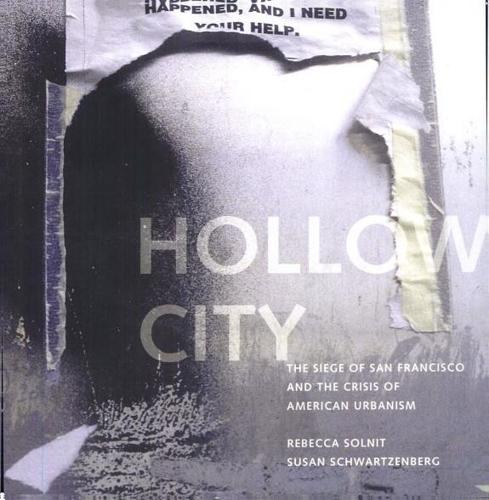
Hollow City
by
Rebecca Solnit
and
Susan Schwartzenberg
Published 1 Jan 2001
All The posters. on first one . . my own blow succeeded as revolutionary propa- message was completely transparent without saying anything about capitalism or bourgeois society or proletariats or Marx. They communicate the message and anybody who knew what on which they class divide people, all wage-slaves, identify with fetishizes the private other good things up —now fell that way. ." . . mentary on the guy who puts is not to say that that's what was on the posters, automobile more than the working that the posters The margins, he posters. I I mean who One of the didn't set explained, allowed people to write "Somebody wrote, this up, he's a working all class?
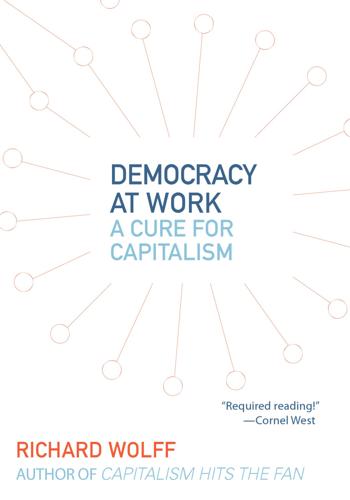
Democracy at Work: A Cure for Capitalism
by
Richard D. Wolff
Published 1 Oct 2012
Second, they would be democratically and collectively given fully equal participation throughout their term of employment in the design, operation, and change of that division of labor and in the distribution of its outputs. No one could work without engaging in both roles. The ancient divisions between mental and manual laborers, between workplace controller and controlled, between bosses and wage slaves would be overcome, thereby achieving an immense step toward economic and hence social equality. Building Support for the Cure To win social approval for the creation and sustenance of WSDEs inside modern economies, a number of different campaigns could be pursued. A government program of financing and supporting new WSDEs could focus on the unemployed.

Affluenza: When Too Much Is Never Enough
by
Clive Hamilton
and
Richard Denniss
Published 31 May 2005
Arriving at 43 AFFLUENZA work, the stallion turns back into a car and Stallion Man miraculously finds a parking space right in front of his office. As he steps from the car an attractive woman approaches to brush from his jacket the dust that had accumulated while he was riding his steed to work. The message is clear to the most inattentive of viewers: even a nine-to-five wage slave can live out cowboy fantasies and appeal to attractive women if he buys a large, inefficient and expensive car to crawl through peak hour traffic each day. The role of persuasion and emotion in advertising was described in the following way: One of the striking tendencies of human beings is to act, judge, believe or vote on strictly instinctive, emotional grounds, and then, after the act is committed, to try to justify or defend it by intellectual or logical reasons . . .
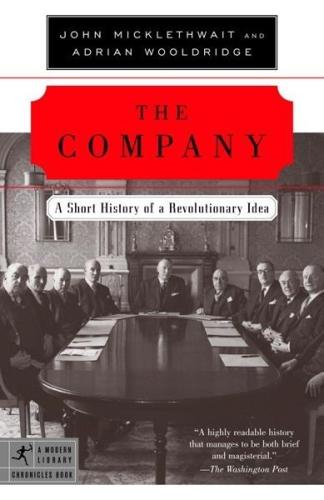
Company: A Short History of a Revolutionary Idea
by
John Micklethwait
and
Adrian Wooldridge
Published 4 Mar 2003
Follett’s claim might be taken as a tribal manifesto for one of the unsung heroes of the twentieth century. Company Man has not had a good press. Sinclair Lewis pilloried him as Babbitt (1922), the epitome of self-satisfied philistinism. In Coming Up for Air (1939), George Orwell portrayed him as little more than a wage slave—“never free except when he’s fast asleep and dreaming that he’s got the boss down the bottom of a well and is bunging lumps of coal at him.” Yet he helped to change companies the world over. As early as 1920, Company Man’s character had been formed by two things: professional standards and corporate loyalty.

Half Empty
by
David Rakoff
Published 20 Sep 2010
When I called the fellow who’d written the Five Points novel to make sure the plaque had arrived, his wife told me that the validation of being a finalist had lifted him out of a years-long funk and he was writing again. I would never know, she told me, what a gift that was. She, in turn, would never know that the entire enterprise had been little more than a backfired prank, or that I was an over-entitled wage slave with absolutely no power and too wrapped up in my own aborted fantasies at the time to be of any help to anybody. And that the golden seals on the diplomas were salvaged from the packaging of the bathroom soap I bought in Chinatown for fifty cents a bar. I never saw the author again. Not long after the contest, she found fault with the publishing company as a whole and moved on to more lucrative pastures.
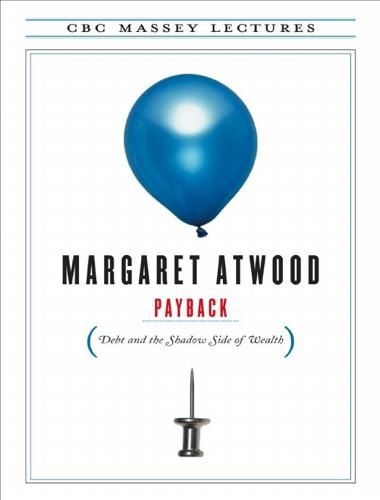
Payback: Debt and the Shadow Side of Wealth
by
Margaret Atwood
Published 15 Mar 2007
Also, mills herald the coming Industrial Revolution, a thing Quixote intuits; and it, and everything it will bring with it, are bad news for a chivalric romantic like him, just as Vanity Fair is bad news for a religious romantic like John Bunyan. William Blake recognized the same infernal qualities in mills. By the time he wrote his famous poem “Jerusalem,” with its “dark Satanic mills,” those mills were grinding out not only flour but fabric, and in the process gobbling up a lot of sickly wage slaves. But Blake’s mills came with a ready-made Satanic reputation — one they’d inherited through the long hereditary line of mills. That line continued through the nineteenth century, spinning out such testaments to the Industrial Revolution as Elizabeth Gaskell’s mill-town classic Mary Barton, and, in Canada, Frederick Philip Grove’s tycoon-o-drama, The Master of the Mill.
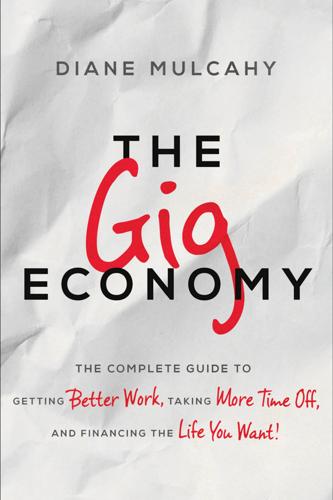
The Gig Economy: The Complete Guide to Getting Better Work, Taking More Time Off, and Financing the Life You Want
by
Diane Mulcahy
Published 8 Nov 2016
Their talents are in demand, so they can command high wages and have the most opportunity to structure and design their own working lives and craft their own futures. They can take advantage of the chance to create a working life that incorporates flexibility, autonomy, and meaning. Skilled workers have the chance to move from good jobs to great work. Middle managers and corporate wage slaves don’t appear to be winning. Their skills are less in demand and more likely to be automated, contracted, or outsourced. Maybe they’re hanging on to the final dangling remnants of the ladder they were climbing or clinging anxiously to the full-time corporate job they’ve managed to hold on to so far.

Having and Being Had
by
Eula Biss
Published 15 Jan 2020
Eventually, Engels supported them both by selling his share in his father’s factory. When Marx got an inheritance, he moved into a large house. Shortly after, he wrote to Engels that he had spent £500, the equivalent of a sizable annual salary today, paying off debts and furnishing the house, and now he needed money to pay the landlord. Marx would not work as a “wage slave,” and he saw what this would mean for his daughters. They would have to marry well or become servants. So Marx pretended at a bourgeois life. His girls were given lessons in art and riding and music, and they hosted a ball in the new house. All this, Marx wrote to Engels, was in the interest of “securing their future.”

Re-Educated: Why It’s Never Too Late to Change Your Life
by
Lucy Kellaway
Published 30 Jun 2021
I am sure there are people out there of roughly my age who want to do it too. We talked for three hours, at the end of which I ran across the green to the Tube – not because I was in a hurry but because I was propelled by a strange elation I’d never felt before. Clearly the whole thing was crazy. I had been a wage slave all my life and had never shown the slightest entrepreneurial leaning, in fact had always felt mild horror when anyone said they wanted to start their own business. I’d watched David work around the clock establishing Prospect, and had lived through the insecurity, the worries about money, the fights with funders, the bone-crushing fatigue.
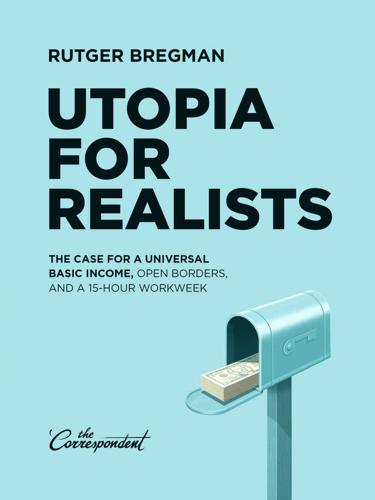
Utopia for Realists: The Case for a Universal Basic Income, Open Borders, and a 15-Hour Workweek
by
Rutger Bregman
Published 13 Sep 2014
But there’s still one puzzle piece that doesn’t fit. Most people play no part in the production of iPhone cases in their panoply of colors, exotic shampoos containing botanical extracts, or Mocha Cookie Crumble Frappuccinos. Our addiction to consumption is enabled mostly by robots and Third World wage slaves. And although agricultural and manufacturing production capacity have grown exponentially over the past decades, employment in these industries has dropped. So is it really true that our overworked lifestyle all comes down to out-of-control consumerism? David Graeber, an anthropologist at the London School of Economics, believes there’s something else going on.
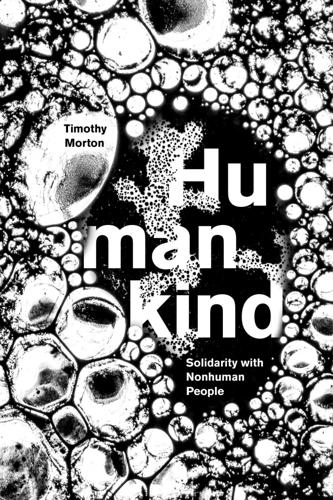
Humankind: Solidarity With Non-Human People
by
Timothy Morton
Published 14 Oct 2017
Both the extreme correlationist and the vanilla essentialist arguments are holding two pieces of the Kantian puzzle, the thing in itself and how that thing appears. For the vanilla essentialist, the trouble has to do with how appearances are superficial, that there is an underlying essence that is unaffected by capital, and therefore alienated to the extent that it can’t find expression. We are wage slaves who upon liberation will be fully ourselves, no longer slaves. We will be de-objectified. Liberation strips away false appearances. For the correlationist essentialist, the picture is quite different. What is constantly present are (human) economic relations. The idea that there is a difference between real us and commodified us is the illusion.

The Meaning of Everything: The Story of the Oxford English Dictionary
by
Simon Winchester
Published 1 Jan 2003
Instead they went to a small house in Peckham, in south London—a marginally better climate than the Scottish Borders, the physicians agreed—and James Murray was obliged to set aside his intellectual pursuits and to take an uninteresting job at the headquarters of the Chartered Bank of India, Australia, and China. He would perch forlornly on a high stool in the Foreign Correspondence department in the very back of the office, wearing starched cuffs and an eye-shade, and write in ledgers in copperplate script while in the company of a host of wage-slaves and Lupin Pooters, all men quite devoid of intellectual curiosity or ambition. Except that through all these travails he did not quite abandon his high-mindedness and his sense of an impending grand purpose. As Maggie slipped closer and closer towards her early death, James kept his intellect busied: he would speak to London policemen and try to determine, from their accents, from where they came; he studied Hindustani and Achaemenid Persian on his daily commute; he lectured on such topics as `The Body and its Architecture' before such groups as the Camberwell Congregational Church and his local Temperance League (he was a confirmed teetotaller).

For the Win
by
Cory Doctorow
Published 11 May 2010
She was staying at something called the Polynesian Resort hotel, and the brochure showed a ticky-tacky tiki-themed set of longhouses set on an ersatz white-sand beach, with a crew of Mexican and Cuban domestic workers in leis, Hawai’ian shirts, and lava-lavas waving and smiling. Her package included a complimentary luau—the pictures made it clear this was nothing like the tourist luaus she’d attended in Maui. On top of that, she was entitled to a “character breakfast” with a wage-slave in an overheated plush costume, and an hour with a “resort counsellor” who’d help her plan her trip for maximal fun. The bullet train came and took on the passengers, families bouncing with anticipation, joking and laughing in every language spoken. These people had just come through a US Customs checkpoint and they were acting like the world was a fine place.
…
“Yeah,” he said softly. There was a hitch in his voice. “All I’m saying is, it doesn’t have to be this way. You could—” “Could what?” he said. He sounded angry, but she thought that he was just upset. “I could go work for Disney, sit in a workshop all day making crap no one cares about? Be the wage-slave for the end of my days, a caged monkey for some corporate sultan’s zoo?” The phrase was Lester’s, and Suzanne knew then that Perry and Lester had been talking about it. Lester, leaning heavily against her on the sofa (they’d pushed it back into the room, moving aside pieces of the Calvinball game), made a warning sound and gave her knee a squeeze.
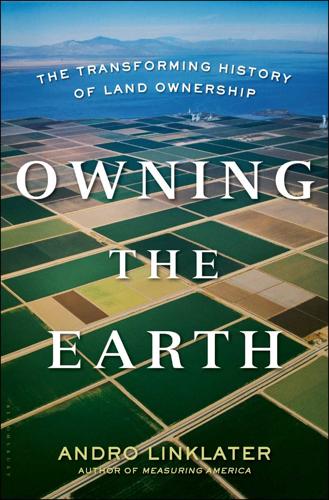
Owning the Earth: The Transforming History of Land Ownership
by
Andro Linklater
Published 12 Nov 2013
The deathblow to the nineteenth century’s free-market ways came from the new, predominantly urban class that suddenly mushroomed in the service of these industrial behemoths. The salary-earning, white-collar employees who worked the interlocking processes that enabled a modern corporation to function were evidently wage slaves, by Marx’s definition, but they tended to own or lease their own homes, suggesting they were members of the bourgeoisie. Even Madison’s more straightforward categories of propertied and unpropertied did not really fit since their homes belonged in large part to the financial institutions funding their mortgages.
…
The solution was half-apparent in the phrase “conspicuous consumption” used by Thorstein Veblen in his Theory of the Leisure Class published in 1899. Veblen coined the term as a jibe against the bloated plutocrats who flaunted their wealth by their “unremitting demonstration of the ability to pay.” But even at that date, the availability of credit was enabling white-collared, half-propertied wage slaves to do much the same, albeit on a reduced scale. As early as the 1880s, Boston furniture stores had allowed customers to buy expensive items, from beds to dining room tables, by paying in instalments. Sears Roebuck followed suit, and was copied by retailers of mass-produced sewing-machines. Most of the new automobile industry’s products could be purchased in the same way, although not the bestselling Model T Ford.
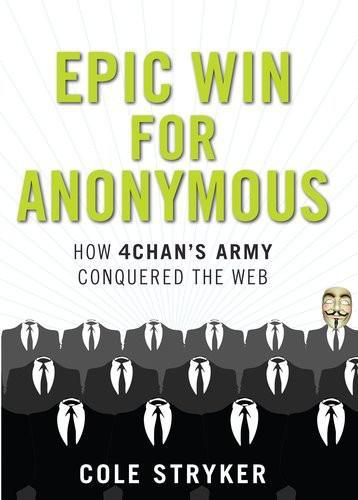
Epic Win for Anonymous: How 4chan's Army Conquered the Web
by
Cole Stryker
Published 14 Jun 2011
We’re talking about a society wherein face-to-face confrontation and emotional expression are actively discouraged. In the United States, straight talk and audacity are prized as character traits. In Japan, they are often interpreted as rudeness or disrespect. It’s the culture of the salaryman, the lonely wage slave who lives to work, with the few social pleasures he allows himself often related to corporate team-building. The image of a salaryman is certainly a stereotype (sleeping in a suit on a subway, late-night corporate-sponsored karaoke), but there’s no question that this socially repressed caricature represented a community that was waiting for a platform like 2channel to come along.

Nickel and Dimed: On (Not) Getting by in America
by
Barbara Ehrenreich
Published 2 Jan 2003
In my own family, the low-wage way of life had never been many degrees of separation away; it was close enough, in any case, to make me treasure the gloriously autonomous, if not always well-paid, writing life. My sister has been through one low-paid job after another—phone company business rep, factory worker, receptionist—constantly struggling against what she calls “the hopelessness of being a wage slave.” My husband and companion of seventeen years was a $4.50-an-hour warehouse worker when I fell in with him, escaping eventually and with huge relief to become an organizer for the Teamsters. My father had been a copper miner; uncles and grandfathers worked in the mines or for the Union Pacific.

Is It Just Me?
by
Miranda Hart
Published 14 Apr 2012
She says it centres her and gives her perspective. Yes, Miranda’s inspirational. She’s got an incredible work–life balance.”’ Suddenly, just as you’ve given up on ever really having one, it would be good to have a hobby again. You panic. ‘My life is meaningless,’ you think. ‘I’m just a shallow little pizza-eating wage-slave.’ So you begin to cast around for a hobby. You suddenly appear – for a fleeting moment – at a hula-hooping class. You phone the Martial Arts School then hang up in fear as soon as they answer. You start to pay a little more attention to yellowing cards in newsagents’ windows inviting you to join Nigel and Ceri and their group of aspiring vegan cooks for a demonstration at the community centre, Tuesdays at 7.30 p.m.

The 80/20 Principle: The Secret of Achieving More With Less
by
Richard Koch
Published 15 Dec 1999
Exploit capital leverage Specialize in a very small niche Specialization is one of the great, universal laws of life. This is how life itself evolved, with each species seeking out new ecological niches and developing unique characteristics. A small business that does not specialize will die. An individual who does not specialize will be doomed to life as a wage slave. In the natural world the number of species is unknown, but it is almost certainly an astonishingly large number. The number of niches in the business world is very much larger than generally appreciated; hence many small businesses, apparently in competition in a broad market, can actually all be leaders in their own niches and avoid head-to-head competition.4 For the individual, too, it is better to know a few things well, or preferably one thing exceptionally well, than it is to know many things superficially.

Poverty Safari: Understanding the Anger of Britain's Underclass
by
Darren McGarvey
Published 2 Nov 2017
Having just fallen into a bin, helped up by my friend, we were now waiting in a close, next to the off-sales, having arrived ten minutes early. We continued drinking and smoking, all the while believing ourselves to be upstanding members of the community. I think I even pissed in the close before we left. While we were all wrapped up in our fantasy of being two nonconformist renegades, valiantly swimming against a stream of wage slaves, we couldn’t see that we were really the walking dead. We had no insight into what we had become. There we were, stood in someone else’s property, having forced the door to gain access, talking loudly, smoking cigarettes and urinating, just to pass the time before getting our next cargo. Had I walked past people doing the exact same thing, my first reaction would be to judge them harshly and assume they were just junkies.
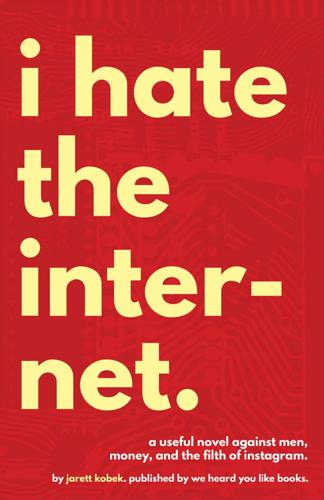
I Hate the Internet: A Novel
by
Jarett Kobek
Published 3 Nov 2016
Life was a trickle of days that dripped away with no meaning and no purpose. She had been raised to think that her identity was hers and hers alone. But Ashley Nelson had taught Ellen a lesson. A person’s identity wasn’t just about what they wanted or how they lived or the choices they made. Life wasn’t made of self-determination. Life was the Chinese wage slave manacled to a factory line, building iPhones. Life was a $130 cheque in 1938. Life was about trying to salve the wounds inflicted by other people, fixing the damage done by strangers and friends. And thanks to the corporations headquartered in, around and near San Francisco, the capacity for that damage was infinite.

Scotland’s Jesus: The Only Officially Non-Racist Comedian
by
Frankie Boyle
Published 23 Oct 2013
Leading economist Douglas McWilliams has suggested the economy could be boosted just by axing all bank holidays. Why stop there? Can you imagine how much the economy would benefit from having us strapped to desks and lathes as Mr McWilliams milks us or extracts our viable eggs with a Dyson crevice tool to mix in a huge breeding pond to create the next generation of wage slaves? Maybe the Occupy movement was the last glimmer of hope, a chance to generate a few stories to tell in the sex camps. Two hundred and fifty people took part in the Occupy London protest. Sadly, they’d have needed a few more bodies before they could have occupied London. With those sort of numbers they could barely occupy screen six at Cineworld.

How Much Is Enough?: Money and the Good Life
by
Robert Skidelsky
and
Edward Skidelsky
Published 18 Jun 2012
Still, our ability to respect a human being presupposes that there is something in him worthy of respect, and this something could, if desired, be called dignity. * Sherman McCoy, the “master of the universe” in Tom Wolfe’s novel, Bonfire of the Vanities, consumes his salary in rents, school fees, etc., with the result that bankruptcy follows within a few weeks of his losing his job. He is in effect a wage-slave, if a rather well-heeled one. * Lord Turner admits this possibility. In his third lecture, he writes that the ends of change and economic freedom “need to be balanced against other potentially desirable objectives.” But he should add that this undermines the utility of growth as an indicator of economic health

A Swamp Full of Dollars: Pipelines and Paramilitaries at Nigeria's Oil Frontier
by
Michael Peel
Published 1 Jan 2009
This Lagosian entropy was a great equalizer in an otherwise divided city. The craters on some roads were so large that they would swallow up a Nissan four-by-four and a battered old taxi equally voraciously and without discrimination, like a great whale sifting for krill. On the Third Mainland Bridge, which led to the airport, executives and commuter wage slaves alike would have to be on the lookout for cars driving on the wrong carriageway to avoid night-time traffic jams. Not for nothing did road-safety signs warn in pidgin English that ‘Life no get duplicate’. In the hands of skilful operators, Lagos’s disorder and disorientation can be turned to financial advantage.
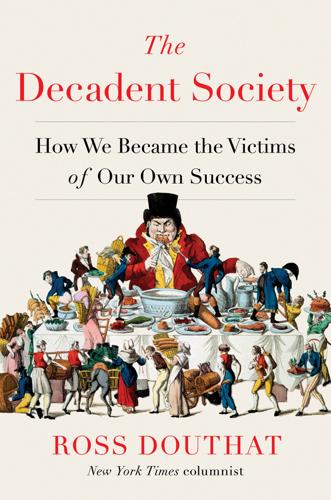
The Decadent Society: How We Became the Victims of Our Own Success
by
Ross Douthat
Published 25 Feb 2020
The responses he published had a certain commonality, envisioning a postscarcity, leisure-rich economy and a society trending toward some form or another of transhumanism. One example: 2030: The last of the unsustainable energy and fiscal policy edifices crumbles just as embedded intelligence emerges. We’ve got the wind in our sails. Billions of people rapidly move from wage slaves to participating in a decentralized, sustainable, opt-in economy which affords them the time to innovate and crowdsource a tsunami of solutions. 2060: Biodiversity blossoms. Consciousness comes under direct control. You can physically live on Mars, Antarctica, New Atlantis, or in the asteroid belt.
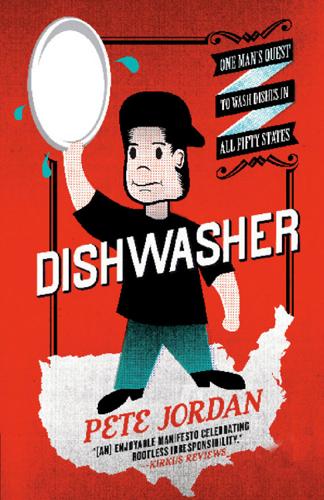
Dishwasher: One Man's Quest to Wash Dishes in All Fifty States (P.S.)
by
Pete Jordan
Published 1 May 2007
142 Dishwasher I couldn’t really foresee any further TV invites so it seemed harmless to give him my word. “Sure,” I said. “I promise.” Before I even arrived in Portland, Oregon, I pretty much knew it was a prodishwasher town. After all, I’d traveled there the year before to attend the Dish Fest—a “wage slave rave” at the old X-Ray Café. Dish Mistress Melody hosted a gathering of pearl divers who played music to dish by, competed in dish Olympics and tested their knowledge in a dish-trivia competition (which, for the record, I won by answering the final question correctly: “What is the proper temperature for a rinse cycle?”
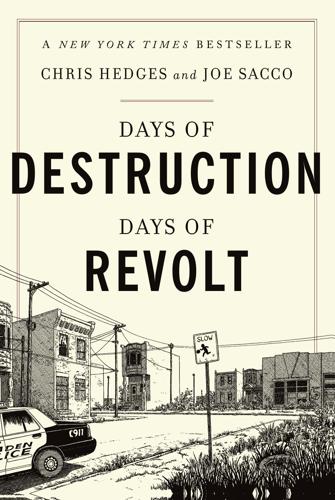
Days of Destruction, Days of Revolt
by
Chris Hedges
and
Joe Sacco
Published 7 Apr 2014
At the end of the story the grandfather, Little Thunder, takes the medals and awards of his two grandsons, lays them in a pile on a hillside, lights them on fire, and in his prayer to the Great Spirit says that they “have no meaning to me without my grandsons.” The old conflict between Indians and Euro-Americans, between colonizers and colonized, between masters and serfs, is the template for the last act of the corporate state. The tyranny we imposed on others is now being imposed upon us. We too are wage slaves. We, too, no longer know how to sustain ourselves. We, too, do not grow our own food or make our own clothes. We are as dependent on the state as the Indians who were herded into the agencies and stripped of their self-sufficiency. Once trapped on reservations, once the buffalo herds no longer existed, once Indians could no longer move in bands to gather wild potatoes, wild turnips, berries, medicines, and cottonwood bark for their horses in the middle of winter, once they could no longer hunt in different places to prevent exhausting the game supply, they became what most of us have become—prisoners.
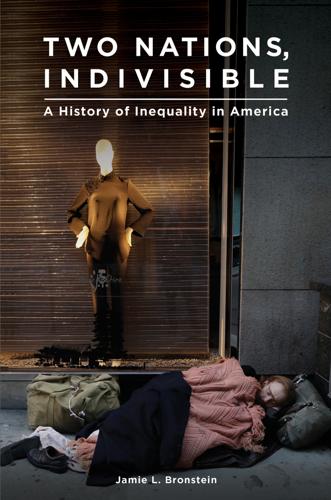
Two Nations, Indivisible: A History of Inequality in America: A History of Inequality in America
by
Jamie Bronstein
Published 29 Oct 2016
Weir, “A Fragile Alliance: Henry George and the Knights of Labor,” American Journal of Economics and Sociology vol. 56 no. 4 (October 1997): 421–439, at 430. 32. White, Railroaded, 342, 343; Oestreicher, “A Note on Knights of Labor Membership Statistics,” 106. 33. Helga Kristin Hallgrimsdottir and Cecelia Benoit, “From Wage Slaves to Wage Workers: Cultural Opportunity Structures and the Evolution of the Wage Demands of the Knights of Labor and the American Federation of Labor, 1880–1900,” Social Forces vol. 85 no. 3 (March 2007): 1393–1411. 34. Julie Greene, Pure and Simple Politics: The American Federation of Labor and Political Activism, 1881–1917 (Cambridge, UK: Cambridge University Press, 1999), 21–27. 35.

Content Provider: Selected Short Prose Pieces, 2011–2016
by
Stewart Lee
Published 1 Aug 2016
“How can you like The Clash”, I asked Grant, “when you’re obviously a Tory entrepreneur?” “Easy,” he answered. “A protest group like The Clash? They’re extremely valuable. The disgruntled proles go and see them on a Saturday night, get drunk, jump around, and feel like their grievances have been addressed. Then they’re much happier going back to being wage slaves for the rest of the week.” I laughed. Back then I assumed Grant was joking. “Out you get,” he continued, “and don’t forget to feed the maggots.” One night, as I was topping up a maggot machine in a lay-by near Thetford, an angler arrived to fill a Tupperware box with comatose larvae. While he made small talk he threaded the fattest maggots onto a succession of hooks, spiking them between two black, eye-like markings on one end.

JPod
by
Douglas Coupland
Published 30 Apr 2007
If I ruled the world, every day would be a Thursday." "Huh?" "Look at it this way: Mondays suck because you're resentful that you can't sleep in, and it's also the day on which sixty percent of life-sucking meetings occur. Tuesdays suck because the week has four more workdays left; you hate yourself and the world because you're trapped in this wage-slave hamster wheel called life. Wednesdays are bad because you realize around noon that the work week is half over, but the fact that you're viewing your life in this manner means that you're nothing more or less than the third panel of that old, unfunny comic strip Cathy, where she realizes she's a fat lonely spinster and her hair flies out and she makes the augghhhhhh!

Oryx and Crake
by
Margaret Atwood
Published 5 May 2003
He said Uncle Pete would never know because he never smoked except when he wanted to have sex with Crake’s mother, which – judging from the number of orange-juice cans and the rate at which they were getting used up – wasn’t often. Crake said Uncle Pete got his real kicks at the office, bossing people around, whipping the wage slaves. He used to be a scientist, but now he was a large managerial ultra-cheese at HelthWyzer, on the financial end of things. So they’d roll a few joints and smoke them while watching the executions and the porn – the body parts moving around on the screen in slow motion, an underwater ballet of flesh and blood under stress, hard and soft joining and separating, groans and screams, close-ups of clenched eyes and clenched teeth, spurts of this or that.

Trick Mirror: Reflections on Self-Delusion
by
Jia Tolentino
Published 5 Aug 2019
Harris, Malcolm. Kids These Days: Human Capital and the Making of Millennials. Little, Brown, 2017. Konnikova, Maria. The Confidence Game. Penguin, 2017. Lewis, Michael. Liar’s Poker. W.W. Norton, 1989. ———. The Big Short. W.W. Norton, 2010. McClelland, Mac. “I Was a Warehouse Wage Slave.” Mother Jones, March–April 2012. Pressler, Jessica. “Maybe She Had So Much Money She Just Lost Track of It.” New York, May 28, 2018. Stone, Brad. The Upstarts: How Uber, Airbnb, and the Killer Companies of the New Silicon Valley Are Changing the World. Little, Brown, 2017. We Come from Old Virginia Coronel, Sheila, Steve Coll, and Derek Kravitz.

Paddle Your Own Canoe: One Man's Fundamentals for Delicious Living
by
Nick Offerman
Published 30 Sep 2013
If memory serves, they would insert it down in the thigh, I suppose utilizing the femoral artery, and snake this catheter up into blocked regions around the actual heart, whereupon the balloon would be inflated, effectively opening up the blockage. How crazy is that shit? And how bizarre for a bunch of barely employed actors to sit around discussing it over the phone with these surgeons who utilized the technology every day. The upshot of that tedious gig was that we fired up a fun competition going amongst a few of us wage slaves. One chap would go into the bathroom, right there at the side of the room, and commit the sin of Onan (beat off), then, upon exiting, he would strike the glass light sconce on the wall next to the bathroom door with the eraser end of his pencil, which would cause it to ring like the bell at a boxing match, signifying a tally of exactly one successfully blown load.
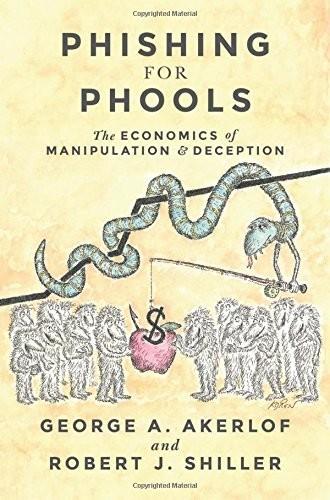
Phishing for Phools: The Economics of Manipulation and Deception
by
George A. Akerlof
,
Robert J. Shiller
and
Stanley B Resor Professor Of Economics Robert J Shiller
Published 21 Sep 2015
Buying White Label would thus kill two birds: commitment to civil society and safety for the buyer’s family. In chapter 6, we saw another example of this symbiosis between concerns for workers’ conditions and for product safety. Recall that Upton Sinclair had set out in The Jungle to expose the wage-slave labor of the Chicago meatpacking houses. But the public was especially shocked by the book’s exposé of what was going into their own stomachs. To this day, the “shopping for a better world” movement still underlies one wing of consumer activism. Think our Priusbuying friends; purchasers of free-range meat and poultry; and United Students against Sweat Shops.

The Boy Who Could Change the World: The Writings of Aaron Swartz
by
Aaron Swartz
and
Lawrence Lessig
Published 5 Jan 2016
Once seated, the legislators were able to pass a ten-hour bill through the state House, but as usually happens with progressive legislation, it was killed in the state Senate. But their writing in the Voice shows that they wanted much more than simply better working conditions. They saw themselves as slaves—wage slaves—and concluded that the solution was not simply to demand that the bosses be nicer to them or pay them more, but to abolish the bosses entirely. The laborer does not yet know what terrible odds he contends with. Concentrated skill in the form of machinery and accumulated labor in the shape of capital, both directed by superior intelligence, are arrayed against him.

Pound Foolish: Exposing the Dark Side of the Personal Finance Industry
by
Helaine Olen
Published 27 Dec 2012
—they will begin to learn the secrets of Robert Kiyosaki, the creator of the highly popular Rich Dad, Poor Dad series of books, DVDs, board games, and other assorted products designed to teach us a new way of thinking about money and real estate, a way guaranteed to ensure that we will never need to rely on a traditional nine-to-five job again. Robert Kiyosaki is only here via a prepared video, but we have a host, a young southerner named Brent, with an incredibly engaging, sincere, and enthusiastic manner, and impossibly boyish face. He’s telling us there is a way for us to go from wage slave, living paycheck to paycheck, to mega mogul, flying off on our dream vacations on a private jet. Real estate. There are, Brent says, “massive opportunities” in real estate, even in 2011 when prices are bottoming out all over the country. You just need to learn how to convince a bank to sell to you.
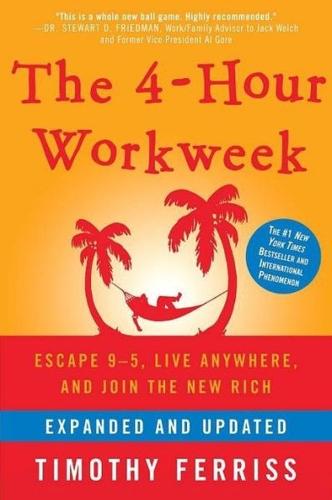
The 4-Hour Workweek: Escape 9-5, Live Anywhere, and Join the New Rich
by
Timothy Ferriss
Published 1 Jan 2007
It is a long-overdue manifesto for the mobile lifestyle, and Tim Ferriss is the ideal ambassador. This will be huge.” —JACK CANFIELD, cocreator of Chicken Soup for the Soul®, 100+ million copies sold “Stunning and amazing. From mini-retirements to outsourcing your life, it’s all here. Whether you’re a wage slave or a Fortune 500 CEO, this book will change your life!” —PHIL TOWN, New York Times bestselling author of Rule #1 “The 4-Hour Workweek is a new way of solving a very old problem: just how can we work to live and prevent our lives from being all about work? A world of infinite options awaits those who would read this book and be inspired by it!”

Age of Anger: A History of the Present
by
Pankaj Mishra
Published 26 Jan 2017
In the 1890s, as the first phase of economic globalization accelerated, xenophobic politicians in France demanded protectionism while targeting foreign workers – angry Frenchmen massacred dozens of Italian immigrant labourers in 1893. White supremacists in the United States had already stigmatized Chinese workers with explicitly racist laws and rhetoric; these were meant, along with segregationist policies against African-Americans, to restore the dignity of a growing number of white ‘wage slaves’. Demagogues in Austria-Hungary, who scapegoated Jews for the mass suffering inflicted by the anonymous forces of global capitalism, sought to copy anti-immigrant legislation introduced in America. The Western scramble for Asia and Africa in the late nineteenth century revealed that the political therapy offered by Cecil Rhodes – ‘he who would avoid civil war must be an imperialist’ – had become increasingly seductive, especially in Germany, which, though successfully industrialized and wealthy, had fostered many angry malcontents and proto-imperialists.
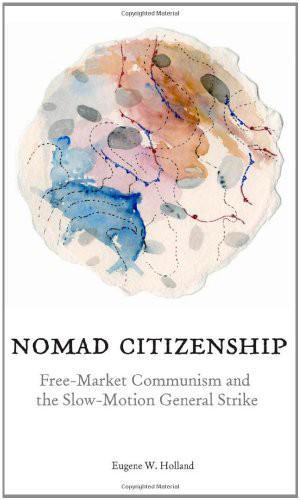
Nomad Citizenship: Free-Market Communism and the Slow-Motion General Strike
by
Eugene W. Holland
Published 1 Jan 2009
Lest we get misled by M arx’s invocation of the “self-positing and selfrealization of exchange-value” once it circulates as capital in such a multi cycle system, we should remember the so-called secret of primitive accumu lation: that despite appearances and terminology, primitive accumulation is fundamentally about the forcible dispossession of the working poor and their ensuing consignment to the status of wage slaves. In making this point about the relative importance of money and labor to the forma tion of capital, in one of the few passages in the early chapters of Capital, volume 1 (chapter 6) that refers explicitly to history, Marx insists that the historical conditions of [capital’s] existence are by no means given with the mere circulation of money and commodities.

Alistair Cooke's America
by
Alistair Cooke
Published 1 Oct 2008
The brains were undoubtedly those of the colonial Establishment, yet these men varied greatly from state to state – being Quakers or freethinkers or yeoman farmers in Pennsylvania, Congregational divines in Massachusetts, Anglican lawyers and landowners in Virginia, heathen shippers and merchants in New York, and so on. We should also remember that it was comparatively easier in the eighteenth century for a man of energy and talent, or energy and cunning, to ‘establish’ himself than in the great era of the industrial wage slave. Their purpose was to invent a national government that would still leave the states with the sovereign powers they had grown used to. A laudable aim that proved, as we shall see, to be a practical impossibility. The Revolutionary War did not end quite so summarily as we might gather from the pictures of Lord Cornwallis, the British commander, surrendering his sword at Yorktown on October 19,1781.
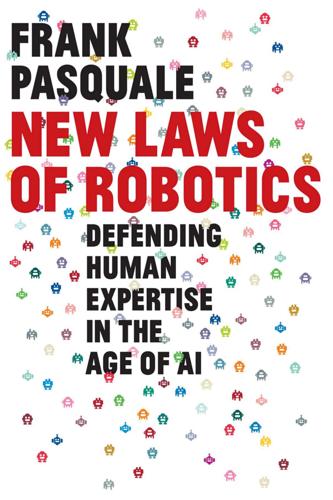
New Laws of Robotics: Defending Human Expertise in the Age of AI
by
Frank Pasquale
Published 14 May 2020
Brishen Rogers, “The Law and Political Economy of Workplace Technological Change,” Harvard Civil Rights-Civil Liberties Law Review 55 (forthcoming 2020). 16. Elizabeth Anderson, Private Government: How Employers Rule Our Lives (And Why We Don’t Talk about It) (Princeton: Princeton University Press, 2018). 17. Veena B. Dubal, “Wage Slave or Entrepreneur?: Contesting the Dualism of Legal Worker Identities,” California Law Review 105 (2017): 101–159; Sanjukta Paul, “Uber as For-Profit Hiring Hall: A Price-Fixing Paradox and Its Implications,” Berkeley Journal of Employment and Labor Law 38 (2017): 233–264. 18. For more responses to critiques of professional organizations, see Sandeep Vaheesan and Frank Pasquale, “The Politics of Professionalism,” Annual Review of Law & Social Science 14 (2018): 309–327. 19.
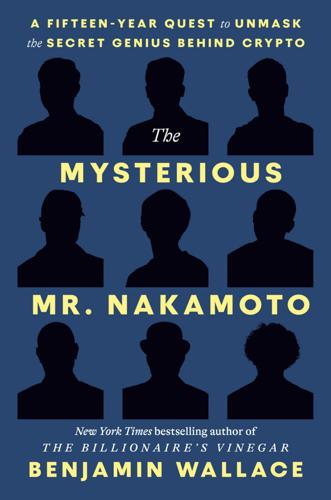
The Mysterious Mr. Nakamoto: A Fifteen-Year Quest to Unmask the Secret Genius Behind Crypto
by
Benjamin Wallace
Published 18 Mar 2025
I suspect he wanted to impress someone he was working with doing bitcoin ATMs in Las Vegas. It hasn’t helped me in my personal life. If I had invented bitcoin or even been an early participant, this would be the least of my worries; I’d own an island or country somewhere and have a military to defend my assets, and not still be a wage slave.” Travis added that he was “allergic to exposure” and had “strong ethical concerns about/against being involved with cryptocurrency” and pointed me toward an essay on the topic that he’d published anonymously. The essay was a wide-ranging overview of Bitcoin, written in 2017 as if by someone trying to work out his own thoughts on the topic.
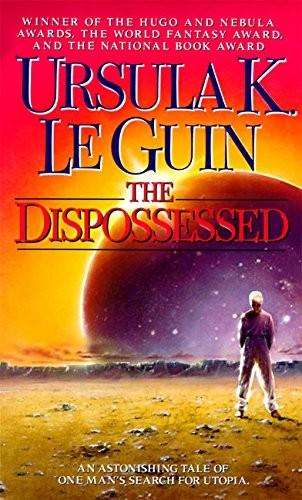
The Dispossessed
by
Ursula K. le Guin
Published 30 Apr 1974
They sat in the middle seat of the big Government limousine that Pae always had on call, the same one that had brought Shevek from the space port last summer. He now lay as they had dumped him on the back seat. “Was he with your sister all day, Demaere?” “Since noon, apparently.” “Thank God!” “Why are you so worried about his getting into the slums? Any Odonian’s already convinced we’re a lot of oppressed wage slaves, what’s the difference if he sees a bit of corroboration?” “I don’t care what he sees. We don’t want him seen. Have you been reading the birdseed papers? Or the broadsheets that were circulating last week in Old Town, about the ‘Forerunner’? The myth—the one who comes before the millennium—‘a stranger, an outcast, an exile, bearing in empty hands the time to come.’
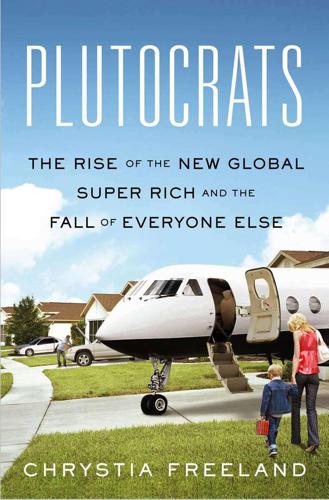
Plutocrats: The Rise of the New Global Super-Rich and the Fall of Everyone Else
by
Chrystia Freeland
Published 11 Oct 2012
On the day I visited, top bosses, including Hsieh, had posed in a dunk tank, allowing themselves to be dumped in a pool in the parking lot to raise money for charity. There are no corner offices at Zappos. The executives sit in the same rows of cubicles as everyone else; Hsieh and his then CFO, Alfred Lin, had decorated their row of desks with streamers and stuffed animals chosen to evoke a jungle theme. For wage slaves from elsewhere, Zappos exerts a powerful appeal. “I’m moving here. I’m done,” said Greg, the Virginia father, who works as a paralegal in Washington, D.C., and was in Las Vegas for a law conference. “I love that—the CFO just has a desk on the floor.” “Yeah, it’s like that at your firm, isn’t it,” Joanne, his wife, said sarcastically.

Happy City: Transforming Our Lives Through Urban Design
by
Charles Montgomery
Published 12 Nov 2013
Private automobiles would free people to escape the central city to build their own self-sufficient compounds in a new kind of urban-rural utopia. In Wright’s planned Broadacre City, citizens would drive their own cars to all the means of production, distribution, self-improvement, and recreation that would be within minutes of their miniature homesteads. “Why should not he, the poor wage-slave, go forward, not backward, to his native birthright?” Wright wrote. “Go to the good ground and grow his family in a free city.” Together, technology and dispersal would produce true freedom, democracy, and self-sufficiency. The pursuit of happiness has never delivered anything like Wright’s Broadacre City.
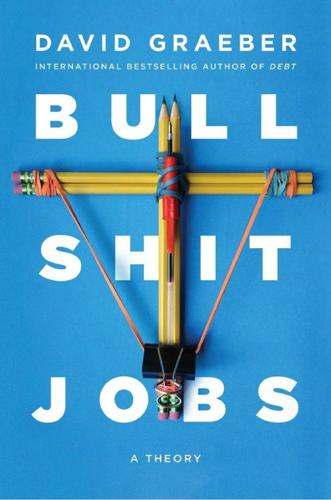
Bullshit Jobs: A Theory
by
David Graeber
Published 14 May 2018
My Job, My Self: Work and the Creation of the Modern Individual. London: Routledge, 2012. Gini, Al, and Terry Sullivan. “Work: The Process and the Person.” Journal of Business Ethics 6 (1987): 649–55. Ginsberg, Benjamin. The Fall of the Faculty. New York: Oxford University Press, 2013. Glenn, Joshua, and Mark Kingwell. The Wage Slave’s Glossary. Windsor, Can.: Biblioasis, 2011. Gorz, Andre. Farewell to the Working Class: An Essay on Post-industrial Socialism. London: Pluto, 1997. ________. Critique of Economic Reason. London: Verso, 2010. Graeber, David. “Manners, Deference, and Private Property.” Comparative Studies in Society and History 39, no. 4 (1997): 694–728. ________.

The Regency Revolution: Jane Austen, Napoleon, Lord Byron and the Making of the Modern World
by
Robert Morrison
Published 3 Jul 2019
He wanted the current system overthrown, and he believed that oppressed Jamaicans, like oppressed Britons, were ready to act. “Before Six Months were over there would be Slaughter in England,” he declared in the autumn of 1819, and he was confident that following the uprising there would be a comprehensive redistribution of property and that both West India slaves and British wage-slaves would soon “hail the Kingdom of Christ . . . and experience the new birth.” In Cobbett, nationalism leads to bigotry. In Wedderburn, it leads to universalism. “The earth was given to the children of men, making no difference for colour or character,” Wedderburn declared in 1817, anticipating the rhetoric of some of the most powerful black leaders of the next two centuries.

When Einstein Walked With Gödel: Excursions to the Edge of Thought
by
Jim Holt
Published 14 May 2018
Power laws apply, in nature or society, where there is extreme inequality or unevenness: where a high peak (corresponding to a handful of huge cities, or frequently used words, or very rich people) is followed by a low “long tail” (corresponding to a multitude of small towns, or rare words, or wage slaves). In such cases, the notion of “average” is meaningless. Mandelbrot absorbed Zipf’s law on the Métro ride home from his uncle’s. “In one of the very few clear-cut eureka moments of my life,” he tells us, “I saw that it might be deeply linked to information theory and hence to statistical thermodynamics—and became hooked on power law distributions for life.”

Bourgeois Dignity: Why Economics Can't Explain the Modern World
by
Deirdre N. McCloskey
Published 15 Nov 2011
If poverty were slavery, there would be identifiable people responsible for such a terrible condition, namely, the slave owners—as there are in the surviving cases of, say, sexual slavery of Southeast Asian and Eastern European girls. Then we could all join in stopping the slavery and making the former wage slaves thirty to one hundred times better off if they were set free in the United States or the Netherlands. But for mutually advantageous wage deals there is no such class of evil slave drivers to be punished and expropriated, at any rate if we care about the welfare of the poor who lose the jobs. Stopping people from taking terrible jobs—through prohibitions or protections or minimums, justified by the warm if mistaken feeling over one’s second cappuccino that one is thereby being generous to the poor (at gratifyingly little expense to oneself)—takes away from the poor what the poor themselves regard as a bettering option.
…
It is made for example by the political philosopher John Tomasi—that we should in ethics care about not merely the people on the scene in the first act (supposing that the faux policies do benefit them, which is a mistaken supposition) but future generations too.7 Yet of course even in the first act the sweatshops of New York were better than leaving Friedman’s parents to dig for food in the city dump, or to sit back in Russia waiting for the next pogrom. That’s why people lined up to get the sweatshop jobs. The leftish usage and its politics echo down to the present, as in The Concise Oxford Dictionary of 1999, in which “wage slave” is defined coolly as “a person who is wholly dependent on income from employment,” with the notation “informal”—but not “ironic” or “jocular” or, better, “economically illiterate.”8 Thus Judy Pearsall, the editor of the Concise Oxford, who lives, it may be, in a nice semidetached in London NW6 and drives an old Volvo, is a “slave.”

Islands in the Net
by
Bruce Sterling
Published 31 May 1988
“I noticed you sleep up in the castle tower.” Sticky pointed upstairs. “While they sleep down here by the kitchen.” “Oh, you reckon so?” David drawled, stung. “You want those old folks to walk up two flights of stairs, I guess. While we keep the baby down here to wake our guests.” “I see what I see,” Sticky said. “You say, no more wage slaves, equal rights in the big mother Rizome. Everybody votes. No bosses—coordinators. No board—a Central Committee. But your wife still give orders and they still cook and clean.” “Sure,” Laura broke in. “But not for us, Sticky. For you.” “That’s a good one,” Sticky said, riveting his hot eyes on Laura.
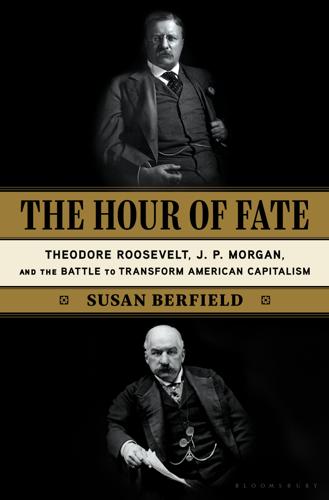
The Hour of Fate
by
Susan Berfield
Simmering violence42 turned into riots and fires and gunshots and at least thirty dead. By August the strikers had been beaten down. Workers who weren’t blacklisted returned to their jobs. The railway union had to disband, and one of its founders, Eugene Debs, went to jail, proclaiming that the union “put forth its efforts43 to rescue Pullman’s famine-cursed wage slaves from the grasp of an employer as heartless as a stone, as remorseless as a savage and as unpitying as an incarnate fiend.” That summer a weary President Cleveland made a symbolic gesture. He established a federal holiday in honor of workers. On Monday, September 3, 1894, the country celebrated the first national Labor Day.
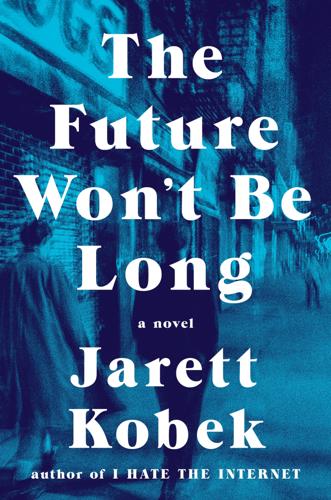
The Future Won't Be Long
by
Jarett Kobek
Published 15 Aug 2017
Everyone was making noise about the prominence of the region, about the development of new technologies, about Steve Jobs and NeXT. He picked up work and learned that he couldn’t stand employment at a normal corporation, that he’d dedicated his life to an intolerable industry. He quit his job with every intention of becoming a retail wage-slave, but then a friend suggested that he apply at LucasArts. They were looking for quality-assurance cogs. A week into this position and Nash Mac realized his passion for the material. He pushed his way up, functioning as an intermediary between the technology people and the designers. Initially, that line had been blurry, as the original designers were the people who created SCUMM, the primary scripting language of the LucasArts adventures.
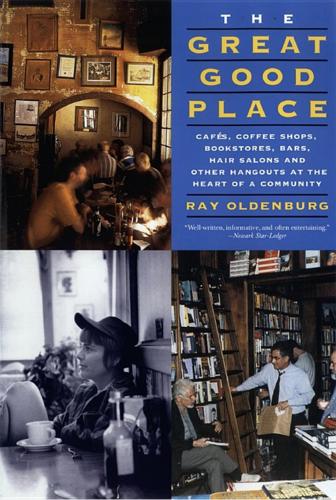
The Great Good Place: Cafes, Coffee Shops, Bookstores, Bars, Hair Salons, and Other Hangouts at the Heart of a Community
by
Ray Oldenburg
Published 17 Aug 1999
And yet many Americans enter taverns only in the safety of numbers; many would not consider going into one unescorted by friends—friends very much like themselves. I suspect that it is not so much a matter of class consciousness as occupational cloistering. I frequently encounter successful business people out rubbing and bending elbows with both white- and blue-collar wage slaves, but can count on one hand the number of professional colleagues who find and frequent bars on their own. The cloistering is even more obvious among public school teachers, for whom tavern drinking is now permitted. Not only do they go to taverns together, they often do so in such numbers as literally to take over the places they select.
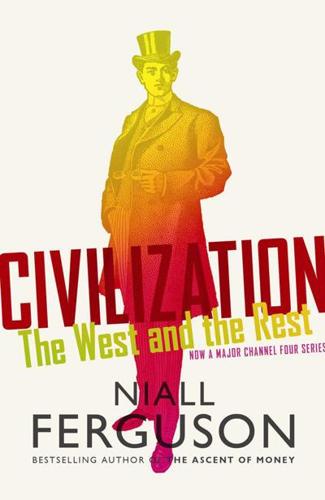
Civilization: The West and the Rest
by
Niall Ferguson
Published 28 Feb 2011
But the Industrial Revolution would not have begun in Britain and spread to the rest of West without the simultaneous development of a dynamic consumer society, characterized by an almost infinitely elastic demand for cheap clothes. The magic of industrialization, though it was something contemporary critics generally overlooked, was that the worker was at one and the same time a consumer. The ‘wage slave’ also went shopping; the lowliest proletarian had more than one shirt, and aspired to have more than two. The consumer society is so all-pervasive today that it is easy to assume it has always existed. Yet in reality it is one of the more recent innovations that propelled the West ahead of the Rest.
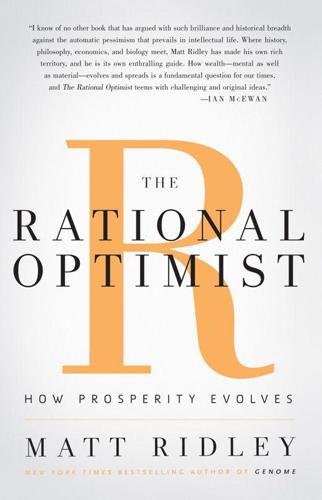
The Rational Optimist: How Prosperity Evolves
by
Matt Ridley
Published 17 May 2010
The wives and daughters of farmers, and their menfolk in certain seasons, were in effect prepared to add to family income by selling labour as well as produce. Sometimes they found themselves in debt, because they borrowed money from the putters-out to equip themselves. You can see these folk as desperate wage slaves driven off communal land by enclosure acts, the division of common land into private plots that gradually spread across most of England between about 1550 and 1800. But this is misleading. It is more accurate to see the rural textile workers as taking the first step on the ladder of producing and consuming, of specialisation and exchange.
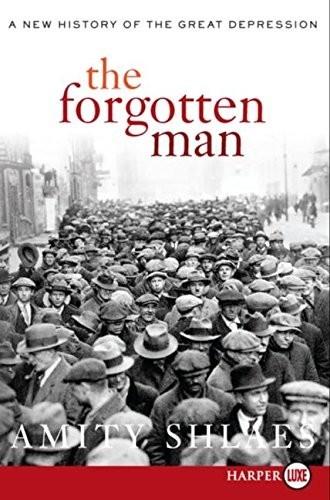
The Forgotten Man
by
Amity Shlaes
Published 25 Jun 2007
Meanwhile her family turns to questionable behavior—the appropriation of a company-developed glue recipe, and borrowing without asking from the till at work. In the end Alice prevails as the wealthy members of her town, led by her beau, recognize the error of their own ways. The employer of Alice’s father shares the wealth—Huey Long sprang to mind—by making Alice’s father more of a partner and less a wage slave. The Republicans, comprehending at least some of their own failures, were seriously considering as presidential candidate a governor from the middle of the country—Alf Landon of Kansas—to help them reconnect with citizens. But even as they planned, they doubted whether Landon was a match for the incumbent.
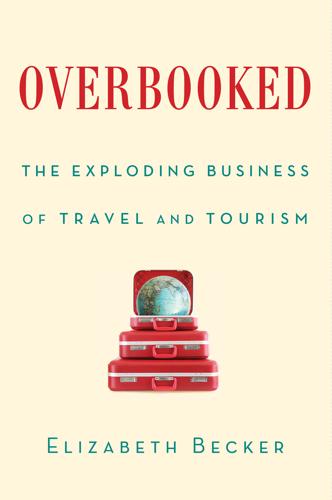
Overbooked: The Exploding Business of Travel and Tourism
by
Elizabeth Becker
Published 16 Apr 2013
In the seminal investigation: “Building Towers, Cheating Workers: Exploitation of Migrant Construction Workers in the United Arab Emirates,” Human Rights Watch, November 2006. A British report was even harsher: Nick Meo, “How Dubai, the Playground of Businessmen and Warlords, Is Built by Asian Wage Slaves,” The Independent (London), March 1, 2005. considering the UAE has a per capita income: UAE per capita income was $48,821 in 2010, according to the International Monetary Fund, http://www.imf.org/external/pubs/ft/weo/2011/01/weodata/index.aspx. Bangladeshi maid who cut off: Wafa Issa, “Maid Cuts Off Employer’s Penis After Being Sexually Harassed,” The National, April 13, 2011.

A Crack in the Edge of the World
by
Simon Winchester
Published 9 Oct 2006
Come the Gold Rush, however, everything precipitously and dramatically changed. It was by the purest coincidence that just nine days after the find, the territory on which the gold was discovered changed hands, and what had been Mexican became, indubitably and eternally, American. Yet when thousands upon thousands abandoned their roles as wretches and wage-slaves in faraway factories and headed off to California, they found a country that, though technically American, still had no constitution, no settled system of law, no firm notion of statehood or any timetable for it, no reliable system of justice – not even a fixed eastern boundary.* This was America raw and unprepared, and it was about to undergo as profound a change of nature as it is possible to imagine.
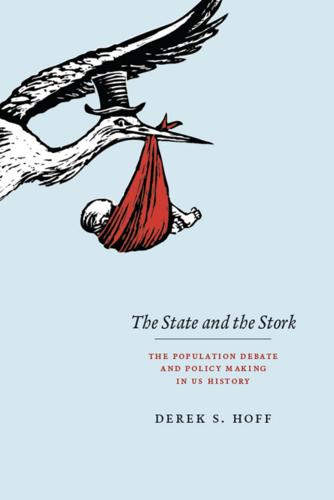
The State and the Stork: The Population Debate and Policy Making in US History
by
Derek S. Hoff
Published 30 May 2012
According to a classic study of proslavery ideology, “the slaveholder concluded that slavery was the best answer to the gloomy speculation advanced under the Malthusian law.”128 In this vein, the South’s languid demographics and slow pace of life compared favorably to the rapid population growth in northern industrial cities, which pauperized workers and created a permanent class of urban wage slaves. One contributor to the widely read southern journal De Bow’s Review declared, “Great cities are beginning to be plague-centers in the social system.”129 (Editor James De Bow was a prominent Malthusian.) Southern theorists in this camp usually opposed white immigration as well, and, in a further rebuke of free labor doctrine, 36 chapter 1 branded European immigrants “white slaves” who could not be assimilated into American society.130 Although some proslavery voices suggested that the slave system would eventually triumph over free labor because it retarded Malthusian pressure on wages and kept society harmonious, others used Malthusian arguments to predict the eventual demise of slavery!
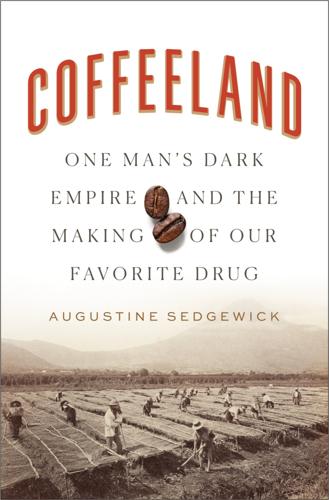
Coffeeland: One Man's Dark Empire and the Making of Our Favorite Drug
by
Augustine Sedgewick
Published 6 Apr 2020
[which] Taylor himself has described . . . [as] ‘scientific,’” Lenin wrote in Pravda in 1913. “What is this ‘scientific system’? Its purpose is to squeeze out of the worker three times more labour. . . . They . . . mercilessly drain him of all his strength, and are three times faster in sucking out every drop of the wage slave’s nervous and physical energy. . . . In capitalist society, progress in science and technology means progress in the art of sweating.”49 Revolution, Lenin predicted, would come when capitalism’s opponents took the same aggressive approach—when “a few professionals, as highly trained and experienced as the imperial security police, were allowed to organize it.”50 When the leaders of the Salvadoran Communist Party realized that they would have to fight for power, they wrote to Moscow to ask for money and weapons.51 * * * — PREPARATIONS WERE ALSO under way on the volcano.

Evil Geniuses: The Unmaking of America: A Recent History
by
Kurt Andersen
Published 14 Sep 2020
The technologies that were built out so giddily and fast, steam-powered railroads and electric telegraphy, kept our frontier line moving west, allowed more millions of people, new immigrants and descendants of former immigrants, to fashion new lives in new towns and cities closer to the frontier. In less than twenty years, from the early 1840s to 1860, America’s railroads grew from about 3,000 miles to 30,000, and its telegraph lines from 38 miles to 50,000. If an American disliked being a factory worker or any other kind of wage slave, he could light out for the territory ahead of the rest, or at least sustain himself with the fantasy of doing so, to homestead or build the railroad or hunt for gold or silver or for suckers to grift. He or even she could leave an overfamiliar old hometown for some new place to become someone new, with a reworked or fictitious identity.
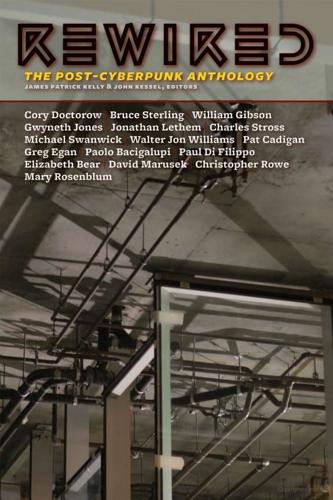
Rewired: The Post-Cyberpunk Anthology
by
James Patrick Kelly
and
John Kessel
Published 30 Sep 2007
I just want to learn about bikes.” “You were working with bikes when you lived here with me. You had a real job and a safe home where you could take regular showers.” “Sure, I was working, but I never said I wanted a job, Mom. I said I wanted to learn about bikes. There’s a big difference! I can’t be a loser wage-slave for some lousy bike franchise.” His mother said nothing. “Mom, I’m not asking you for any favors. I don’t need any bosses, or any teachers, or any landlords, or any cops. It’s just me and my bike work down here. I know that people in authority can’t stand it that a twenty-four-year-old man lives an independent life and does exactly what he wants, but I’m being very quiet and discreet about it, so nobody needs to bother about me.”
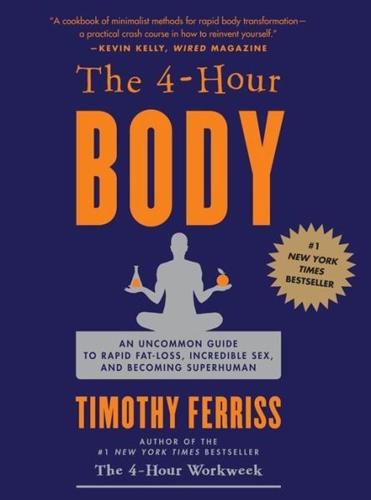
The 4-Hour Body: An Uncommon Guide to Rapid Fat-Loss, Incredible Sex, and Becoming Superhuman
by
Timothy Ferriss
Published 1 Dec 2010
It is a long-overdue manifesto for the mobile lifestyle, and Tim Ferriss is the ideal ambassador. This will be huge.” —Jack Canfield, cocreator of Chicken Soup for the Soul®, 100+ million copies sold “Stunning and amazing. From mini-retirements to outsourcing your life, it’s all here. Whether you’re a wage slave or a Fortune 500 CEO, this book will change your life!” —Phil Town, New York Times bestselling author of Rule #1 “The 4-Hour Workweek is a new way of solving a very old problem: just how can we work to live and prevent our lives from being all about work? A world of infinite options awaits those who would read this book and be inspired by it!”

The Diamond Age
by
Neal Stephenson
Published 2 May 2000
If the gathering had included more veterans of that elongated state of low-intensity warfare known as Society, this observation would have been keenly made by those soi-disant sentries who stood upon the battlements, keeping vigil against bounders who would struggle their way up the vast glacis separating wage slaves from Equity Participants. It would have been duly noted and set forth in the oral tradition that Gwendolyn Hackworth, though attractive, hard-waisted, and poised, lacked the confidence to visit Lord Finkle-McGraw's house in anything other than a new dress made for the occasion. The gray light suffusing the drawing room through its high windows was as gentle as mist.

The Making of Modern Britain
by
Andrew Marr
Published 16 May 2007
The twenty-year-old Bennie Rothman and five others were arrested, tried at Derby assizes by juries including two brigadier generals, three colonels, two majors, three captains, two aldermen and eleven country gentlemen, and sent to prison. Another man on the trespass was a teenage Salford communist who would later become famous as the folk singer Ewan MacColl: his song ‘The Manchester Rambler’ gives some of the spirit of the time. Its chorus celebrates the ‘wage slave on Monday’ who is a ‘free man on Sunday’ but who is confronted by a furious gamekeeper: He called me a louse and said ‘Think of the grouse’. Well I thought, but I still couldn’t see Why old Kinder Scout and the moors round about Couldn’t take both the poor grouse and me. He said ‘All this land is my master’s’.

The Art of UNIX Programming
by
Eric S. Raymond
Published 22 Sep 2003
They miss an important point: in general, open-source software is written by people who care about it, need it, use it themselves, and are putting their individual reputations among their peers on the line by publishing it. They also tend to have less of their time consumed by meetings, retroactive design changes, and bureaucratic overhead. They are therefore both more strongly motivated and better positioned to do excellent work than wage slaves toiling Dilbert-like to meet impossible deadlines in the cubicles of proprietary software houses. Furthermore, the open-source user community (those peers) is not shy about nailing bugs, and its standards are high. Authors who put out substandard work experience a lot of social pressure to fix their code or withdraw it, and can get a lot of skilled help fixing it if they choose.

Atomic Accidents: A History of Nuclear Meltdowns and Disasters: From the Ozark Mountains to Fukushima
by
James Mahaffey
Published 15 Feb 2015
The graphite moderator cans were clad in stainless steel, and stress cracking and corrosion caused irreducible problems. By 1969, evidence of the Hallum reactor was erased from the prairie, but the Hallum-type pump remains as a credible means of moving liquid sodium. 145 Walter worked as a “wage slave” at the Ford Motor Company starting in 1927. Henry Ford sent him to Nizhny, Novgorod, Soviet Union to help build a tractor factory, but he became overly interested in the proletarian industrial democracy, and Ford fired him in 1932. After working for a few years at an auto plant in Gorky, Reuther returned to the U.S. and became a very active member of the UAW.

The Ministry for the Future: A Novel
by
Kim Stanley Robinson
Published 5 Oct 2020
Paris was a commons, France was a commune. So it felt. Later that proved to be impressionistic to that time, but while it lasted it was amazing. But also exhausting. To live without habits, making it up day by day, trying to get a shower, a meal now and then, find the right way to pitch in, it’s much more work than if you’re just a wage slave. Much more. But people felt it was important, all over they were dropping what they had been doing and joining the fray and giving it all they had, and it felt right. Somehow we kept finding the ways to give it our all. This we felt was a French thing above all, a kind of political improvisation that our whole history and even our language made us good at, if we could figure it out and pull it off.
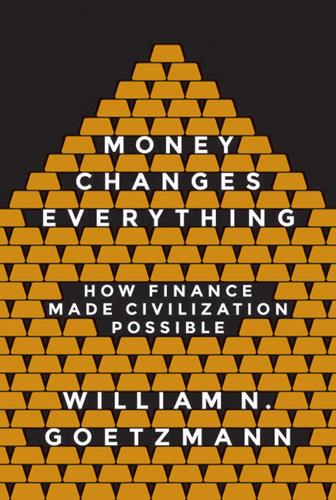
Money Changes Everything: How Finance Made Civilization Possible
by
William N. Goetzmann
Published 11 Apr 2016
But as a matter of fact the capitalist threads, which in thousands of different intercrossings bind these enterprises with private property in the means of production in general, have converted this railway construction into an instrument for oppressing a thousand million people (in the colonies and semicolonies), that is, more than half the population of the globe that inhabits the dependent countries, as well as the wage-slaves of capital in the “civilised” countries. Capitalism has grown into a world system of colonial oppression and of the financial strangulation of the overwhelming majority of the population of the world by a handful of “advanced” countries. And this “booty” is shared between two or three powerful world plunderers armed to the teeth (America, Great Britain, Japan), who are drawing the whole world into their war over the division of their booty.3 The inclusion of Japan in the list of imperialistic powers is significant.
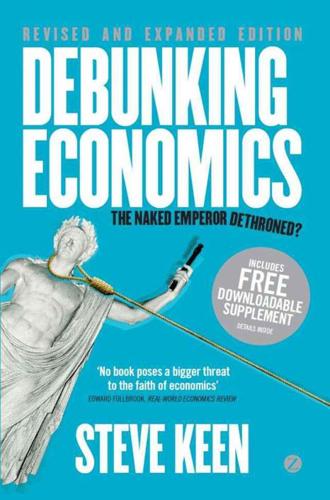
Debunking Economics - Revised, Expanded and Integrated Edition: The Naked Emperor Dethroned?
by
Steve Keen
Published 21 Sep 2011
Some workers are so endowed. Some farmers can be enticed into working as farm laborers if the wage is high enough, and if it’s not, then they can work their own land. Some office workers have the alternative of working for a wage, or operating as independent consultants out of their home offices. Some ‘wage slaves’ can make the transition from employee to employer by an innovative idea, hard work, good luck, skill or good timing – or fraud. But the majority do not have that choice – or rather don’t have it to the degree that they could avoid bankruptcy or starvation by turning to self-employment. For this majority, work is not an option but – in the absence of a very generous social security system – a necessity.
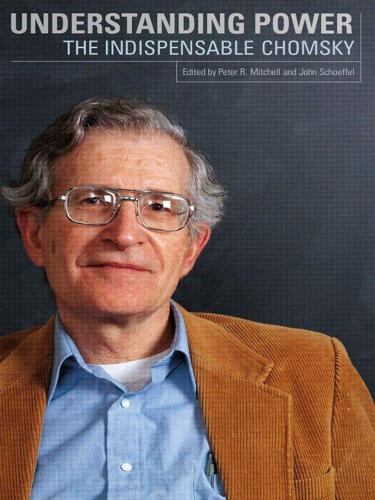
Understanding Power
by
Noam Chomsky
Published 26 Jul 2010
Like, you take better care of your car if you own it than if you rent it, so you take better care of your worker if you own it than if you rent it—so slavery’s benevolent and “free market” is morally atrocious. And the slave owners in fact said, “Look, we’re a lot more benevolent than you guys with your capitalist wage-slave system.” And if you look back at the literature by workers who organized into, say, the Knights of Labor and other working-class organizations of the late nineteenth century, you’ll also see a strain running through their position which said: “We fought to end slavery, not to impose it” [i.e. the industrial wage-labor system became dominant after the Civil War]. 43 So the point is, on all sides of debates like these, people understand that they have to appeal to the same basic moral principles, even if what they’re doing is totally venal.

The True and Only Heaven: Progress and Its Critics
by
Christopher Lasch
Published 16 Sep 1991
The agrarian uprising of the I870s, I880s, and I890s proved to be the first round in a long, losing struggle to save the family farm, enshrined in American mythology, even today, as the sine qua non of a good society but subjected in practice to a ruinous cycle of mechanization, indebtedness, and overproduction. The same changes that weakened the family threatened to reverse the -63- trend toward economic equality, on which believers in progress had counted so heavily. Farmers, artisans, and craftsmen became wage slaves; more than any other development of the nineteenth century, including even the Civil War, the reconstitution of a degraded proletariat in the land of plenty—a permanent class of men and women without property—cast doubt on the agreeable assumption that limitless and irreversible innovation would annul the old cycle of growth and decline.

Ayn Rand and the World She Made
by
Anne C. Heller
Published 27 Oct 2009
When later asked if he was the model for Howard Roark, he answered, “I deny the paternity and refuse to marry the mother.” Rand’s self-confidence as a writer was at a peak. From her office in Paramount’s Art Deco—style studio lot in Hollywood, Hal Wallis became her affectionately nicknamed “Boss” and she his jocular “loyal wage-slave.” She worked for him uncomplainingly on a series of B movies that the Oscar-nominated director now, for some reason, chose to produce in the company that bore his name. During her first work term, extending from summer 1944 until late spring 1945, she wrote three screenplays. The best known is Love Letters, adapted from a novel by British writer Christopher Massie.

Austerity Britain: 1945-51
by
David Kynaston
Published 12 May 2008
‘Even in the most conservative firms, moving assembly lines were now the normal practice.’ It was, in short, a deskilled world of what one former car worker described as ‘very monotonous, terribly monotonous, repetitive work’. Or, in the words of another, ‘It was just pure drudgery. You became a wage slave, nothing else – the only thing you could see at the end of the week was your wages and that was it.’ Nevertheless, Thompson contends that this potentially dispiriting, deskilled reality co-existed in Coventry – above all at Standard – with a culture that owed much to earlier craft traditions.

Why the West Rules--For Now: The Patterns of History, and What They Reveal About the Future
by
Ian Morris
Published 11 Oct 2010
“What the bourgeoisie therefore produces, above all,” Marx and Engels concluded, “are its own gravediggers … Let the ruling classes tremble at a Communist revolution. The proletarians have nothing to lose but their chains. They have a world to win. Workingmen of all countries, unite!” Marx and Engels believed that capitalists had brought this on themselves by fencing off the countryside and driving the dispossessed into cities to be wage slaves, but they had the facts wrong. Rich landlords did not drive country folk off the land; sex did. The nineteenth century’s intensive agriculture actually needed more field hands, not fewer, and the real reason people exchanged farms for cities was reproduction. Life expectancy increased by about three years between 1750 and 1850, and although historians cannot agree why this happened (Fewer outbreaks of plague?

Karl Marx: Greatness and Illusion
by
Gareth Stedman Jones
Published 24 Aug 2016
In relation to Britain’s social development, Karl felt able to reiterate, almost word for word, his description of the development of modern industry in the Communist Manifesto: In no other country have the intermediate stations between the millionaire commanding whole industrial armies and the wages slave living only from hand to mouth so gradually been swept away from the soil. There exist here no longer, as in continental countries, large classes of peasants and artisans almost equally dependent on their own property and their own labour. A complete divorce of property from labour has been effected in Great Britain.

Hawaii
by
Jeff Campbell
Published 4 Nov 2009
Live Hawaiian music takes over on weeknights. Smith’s Union Bar (Map; 538-9145; 19 N Hotel St; 6pm-midnight) You have to be a dive-bar aficionado to appreciate Smith’s Union, which first opened in 1935 when this section of Chinatown was a red-light district and playground for merchant seamen. For wage-slave hipsters, it’s a cheap front-loading hangout before hitting the clubs. Live Music If it is traditional and contemporary Hawaiian music you want, look no further than Waikiki (Click here). But if it’s jazz, alt-rock and punk sounds you’re after, then venture outside the tourist zone in Honolulu’s other neighborhoods.

The Transformation Of Ireland 1900-2000
by
Diarmaid Ferriter
Published 15 Jul 2009
It was also composed of educated women who wrote copiously.178 Almost 700,000 Irish women emigrated from Ireland between 1885 and 1920, 82,000 more than males; while between 1906 and 1914 only one tenth of those leaving were married.179 For those not in the home, secure employment was scarce. Larkin had noted that poverty had made prostitution a fixture of city life, particularly on one side of O’Connell Street, owing to the fact that ‘girl wage slaves’ were driven to it; indeed, venereal disease became such an issue in the city that a special hospital for its treatment was built.180 For those intent on increasing the economic, political and social rights of women there was an abundance of obstacles, but it would be inaccurate to view politicised women as a homogeneous mass, as their politics frequently differed according to class.
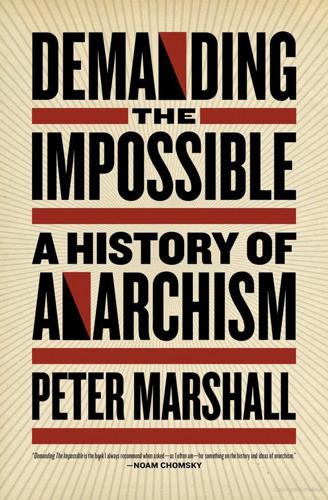
Demanding the Impossible: A History of Anarchism
by
Peter Marshall
Published 2 Jan 1992
But while he believed that wars of liberation and revolution are necessary, he could see no element of emancipation in the First World War.16 In a letter to Freedom in December 1914, he reminded Kropotkin that ‘anti-militarism is the doctrine which affirms that military service is an abominable and murderous trade, and that a man ought never to consent to take up arms at the command of the masters, and never fight except for the Social Revolution.’ Attacking ‘Pro-government Anarchists’ like Kropotkin, Jean Grave, Elisée Reclus and Charles Malato who supported the Allies in the war, he further declared that there was only one remedy: More than ever we must avoid compromise; deepen the chasm between capitalists and wage-slaves, between rulers and ruled; preach expropriation of private property and the destruction of States. Such is the only means of guaranteeing fraternity between the peoples and Justice and Liberty for all; and we must prepare to accomplish these things.17 When he returned to Italy in 1919 he started up the first anarchist daily Umanità Nova in Milan.

Lonely Planet Mexico
by
John Noble
,
Kate Armstrong
,
Greg Benchwick
,
Nate Cavalieri
,
Gregor Clark
,
John Hecht
,
Beth Kohn
,
Emily Matchar
,
Freda Moon
and
Ellee Thalheimer
Published 2 Jan 1992
In colonial times, mineral resources attracted Spanish prospectors to mine for silver, gold, iron, lead, zinc and tin. For two centuries the state produced enormous wealth, extracting up to 40% of the world’s silver. Silver barons in Guanajuato city enjoyed opulent lives at the expense of indigenous people who worked the mines, first as slave labor and then as wage slaves. Eventually, resenting the dominance of Spanish-born colonists, the well-heeled criollo class of the Guanajuato and Querétaro states contributed to plans for rebellion (see the boxed text,). These days, the state’s treasures are the quaint colonial towns of Guanajuato and San Miguel de Allende.

1,000 Places to See in the United States and Canada Before You Die, Updated Ed.
by
Patricia Schultz
Published 13 May 2007
When: main house May–Oct. BEST TIMES: summer weekends for Kneisel concert series; 4th of July weekend for the Blue Hill Pops Festival, featuring everything from choral music to klezmer and Dixieland jazz. Pursuit of Romance and Adventure WOODEN BOAT SCHOOL Brooklin, Maine It’s a fantasy shared by wage slaves and cubicle inmates all over the world: to build one’s own boat and sail away to romance and adventure. Maine’s WoodenBoat School doesn’t promise romance and adventure, but it can sure get you started on boatbuilding. Founded in 1981 by the publishers of WoodenBoat magazine and situated on a gorgeous 64-acre coastal estate, the school offers expert instruction in boat design and construction, repair, seamanship, and woodworking.